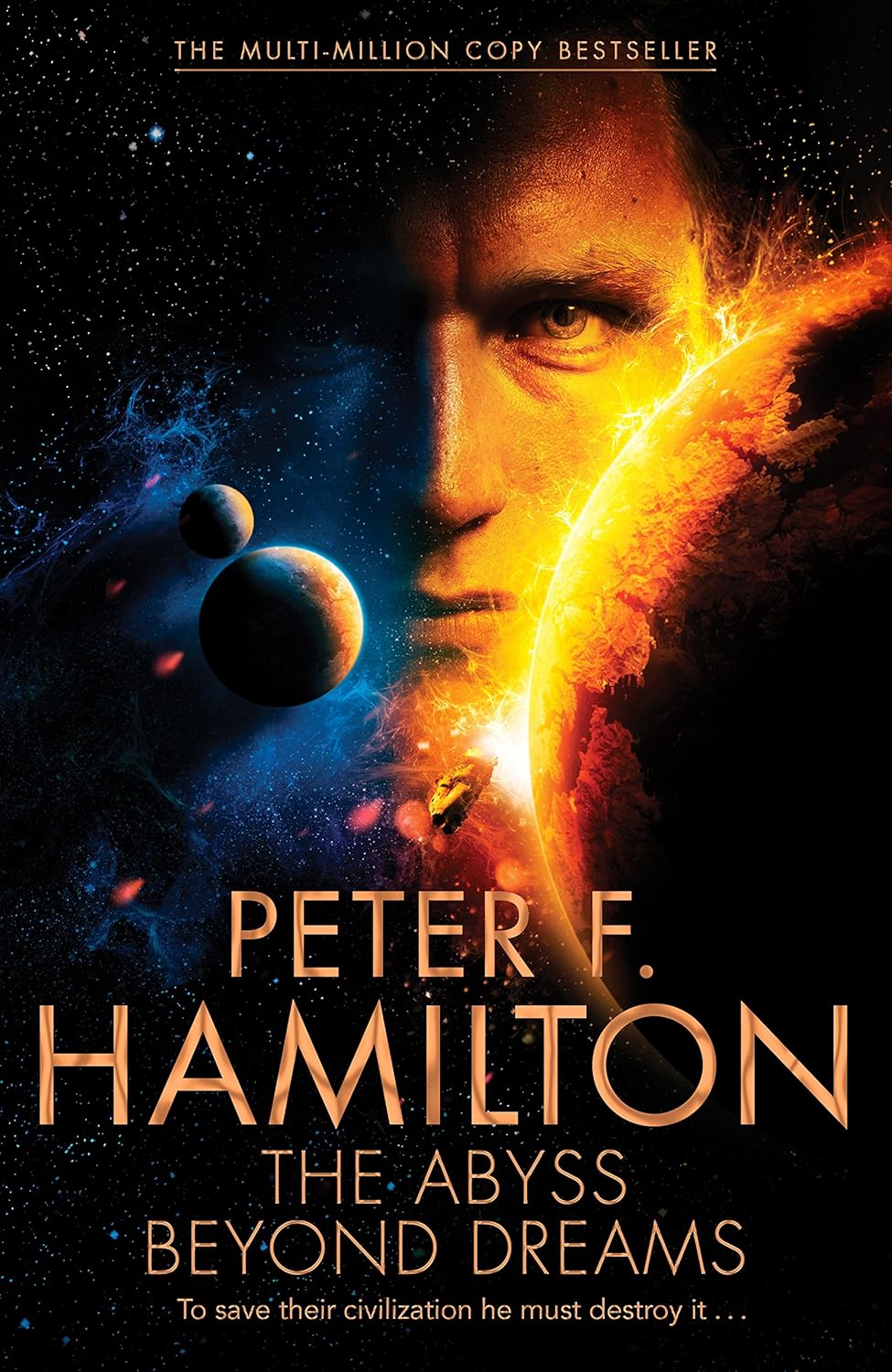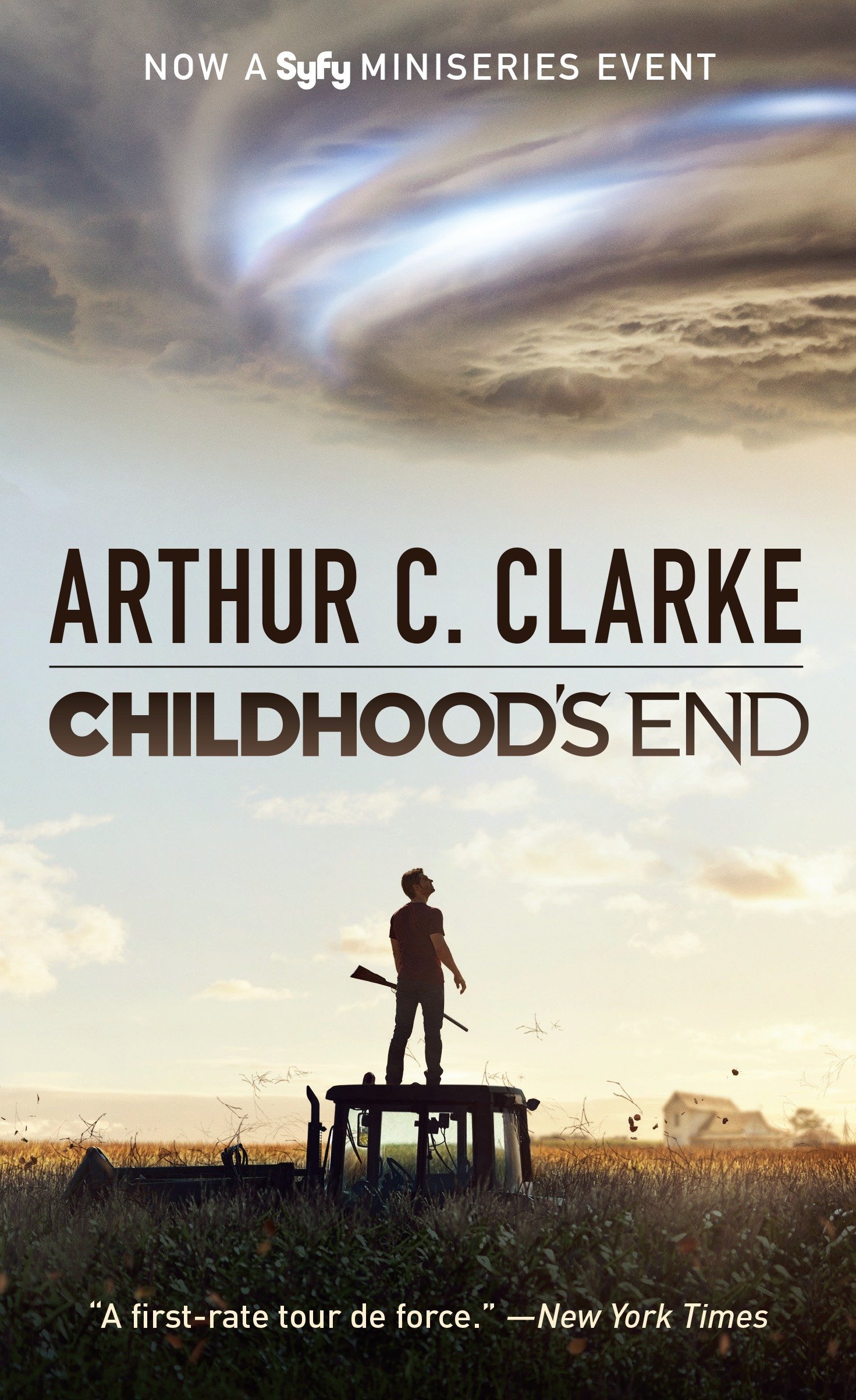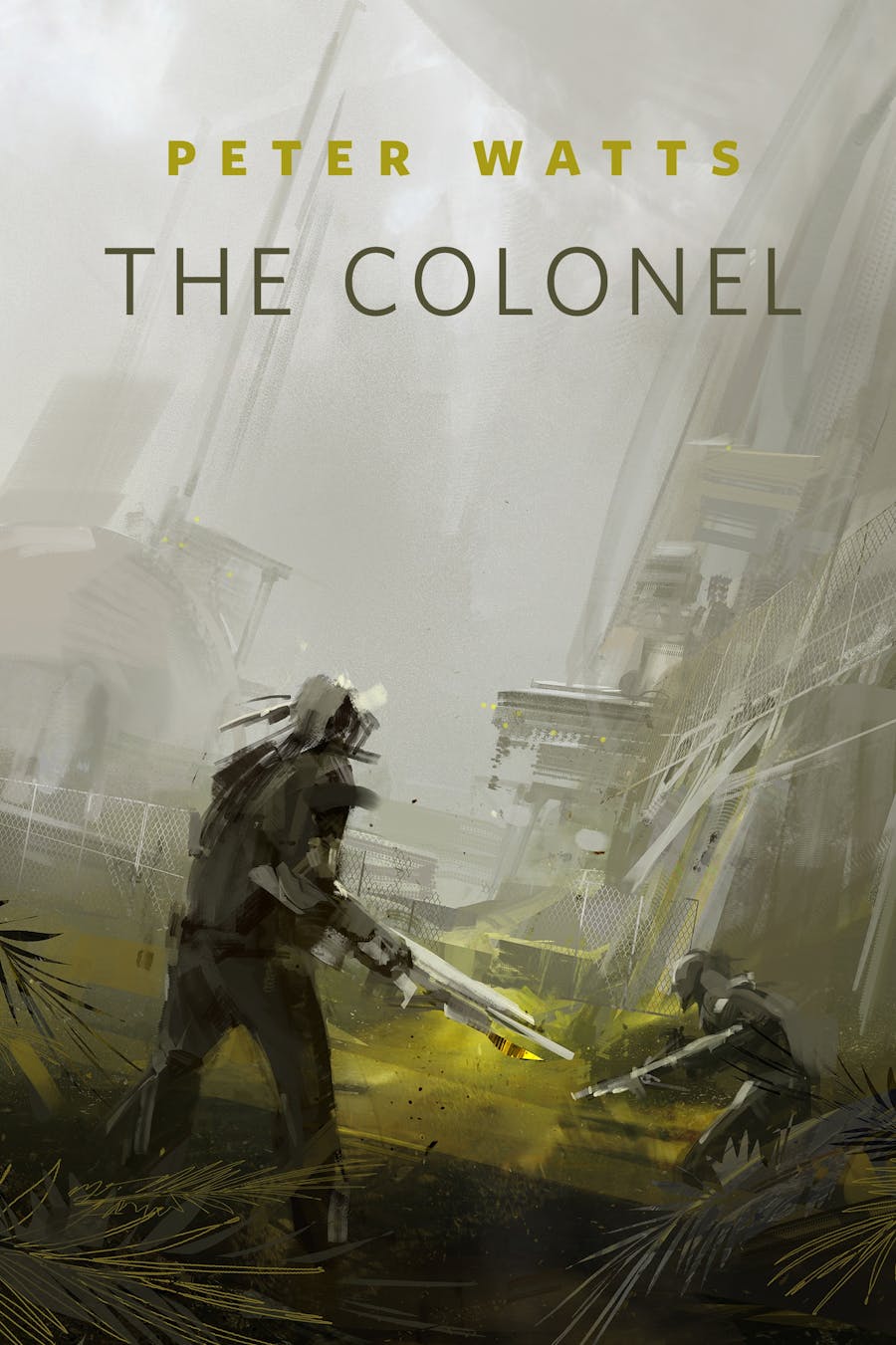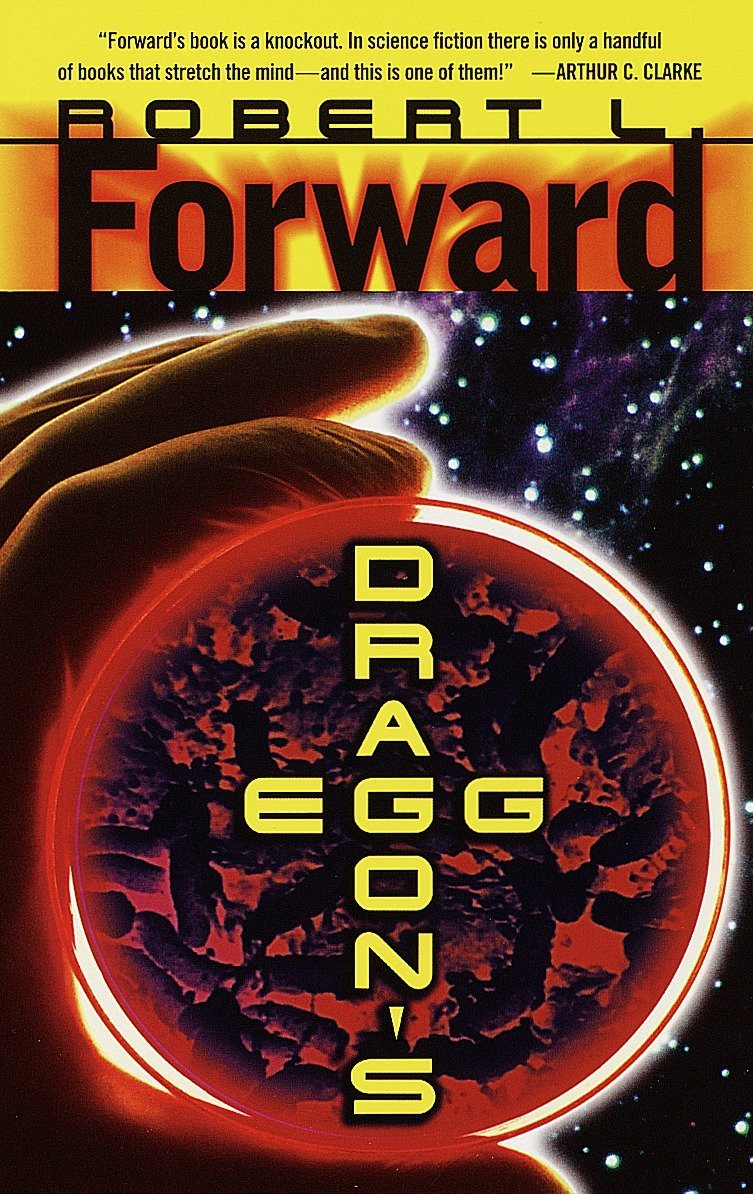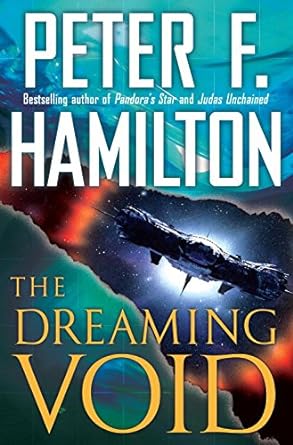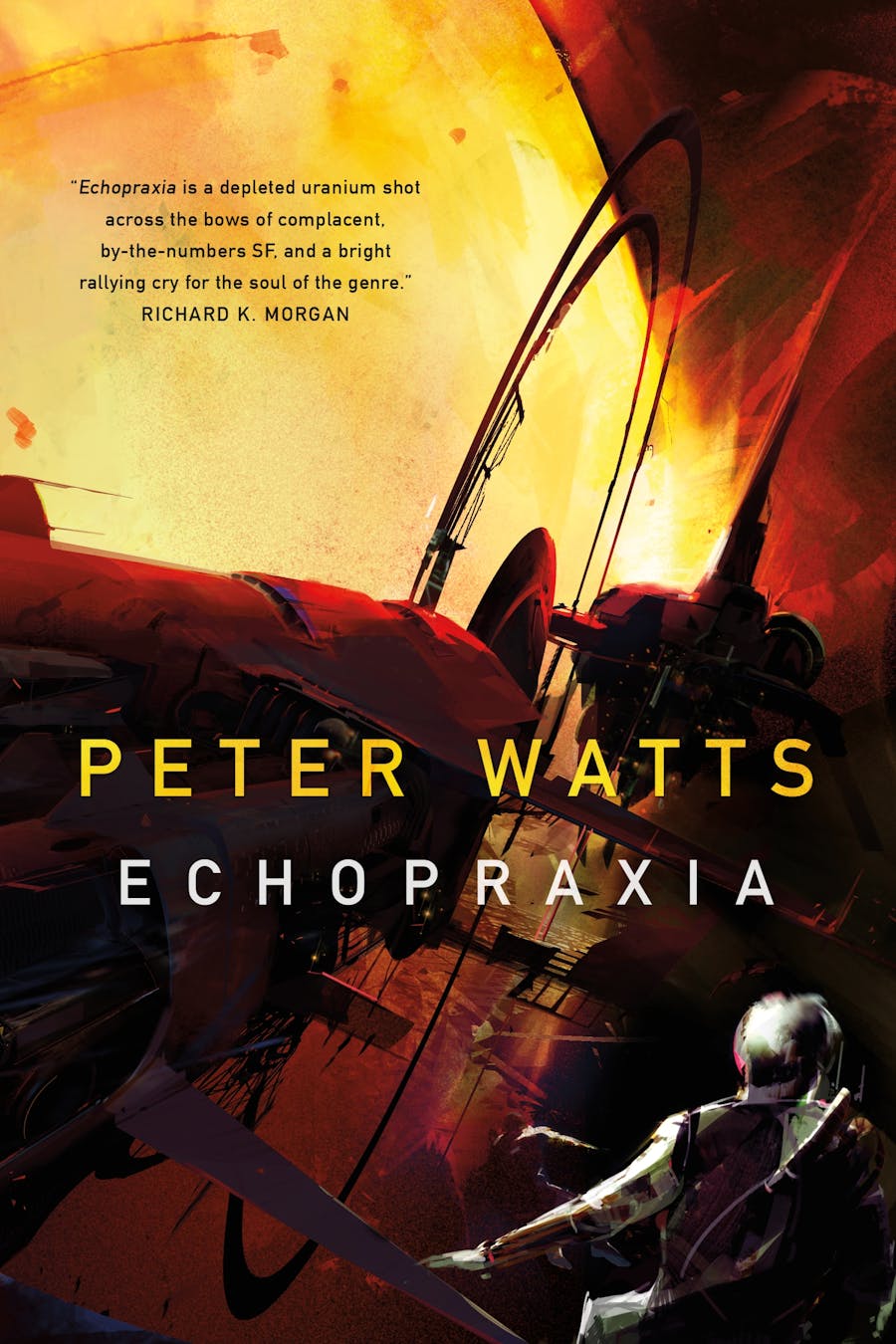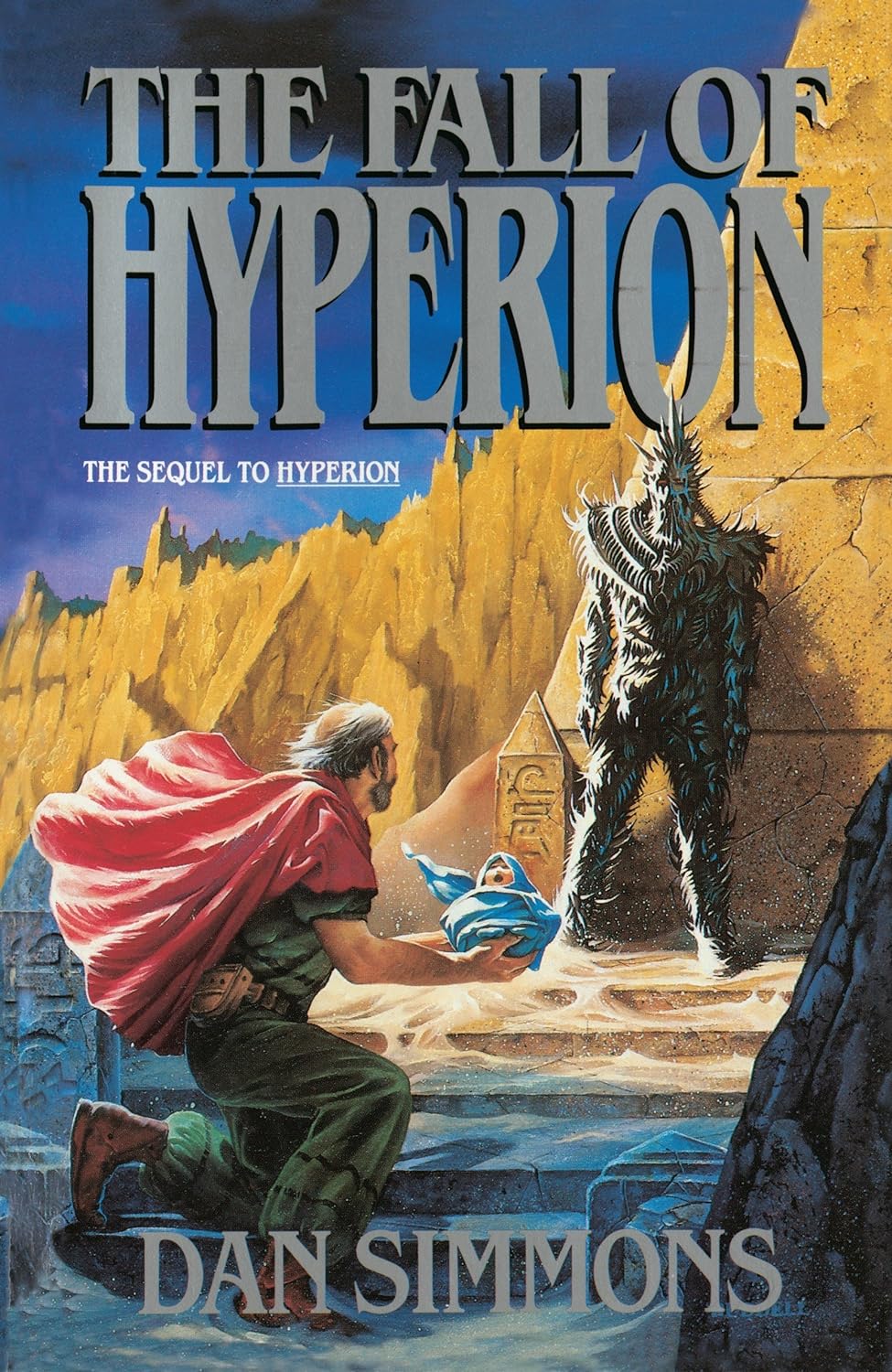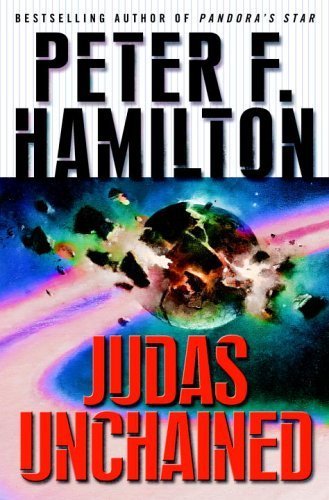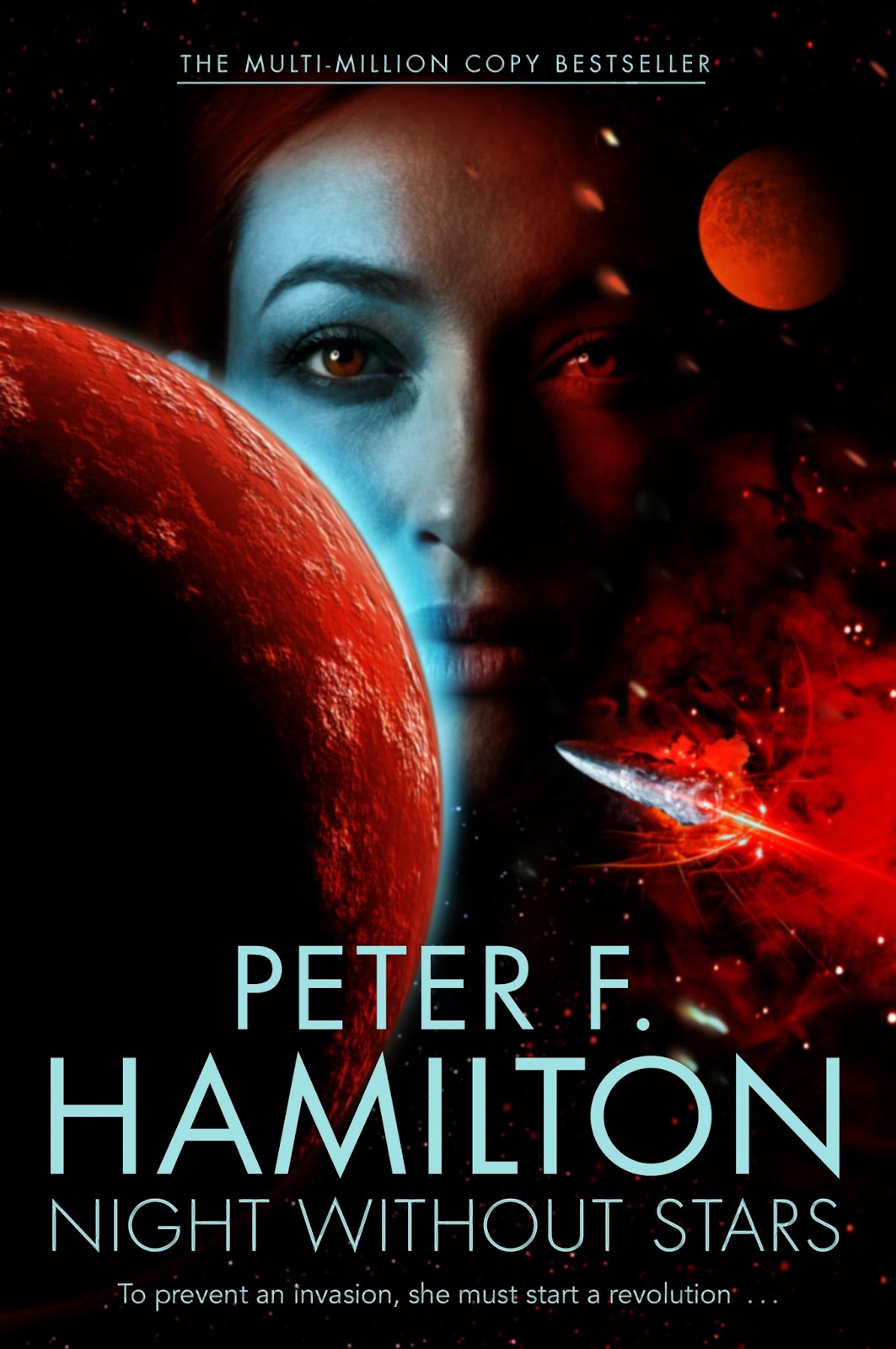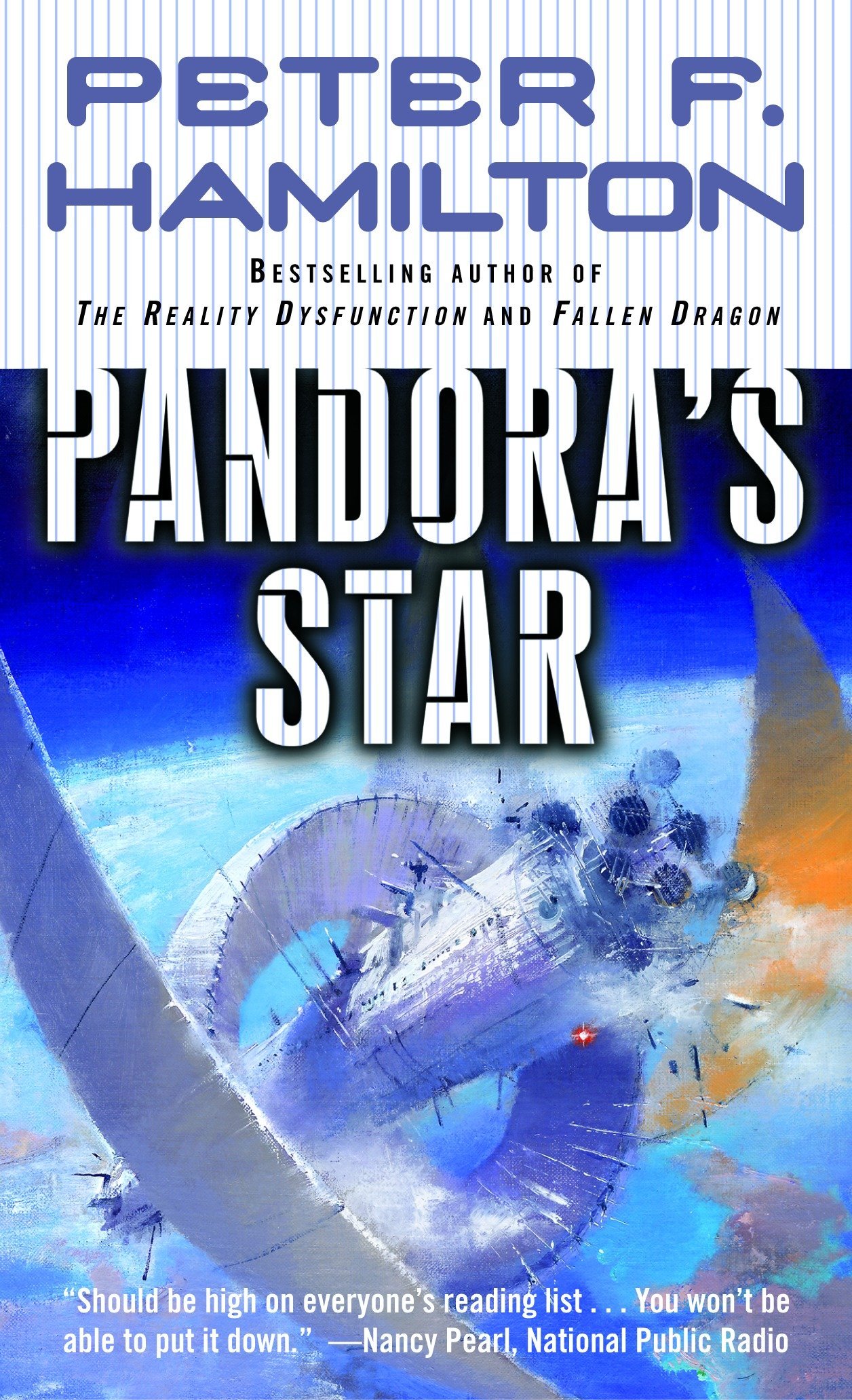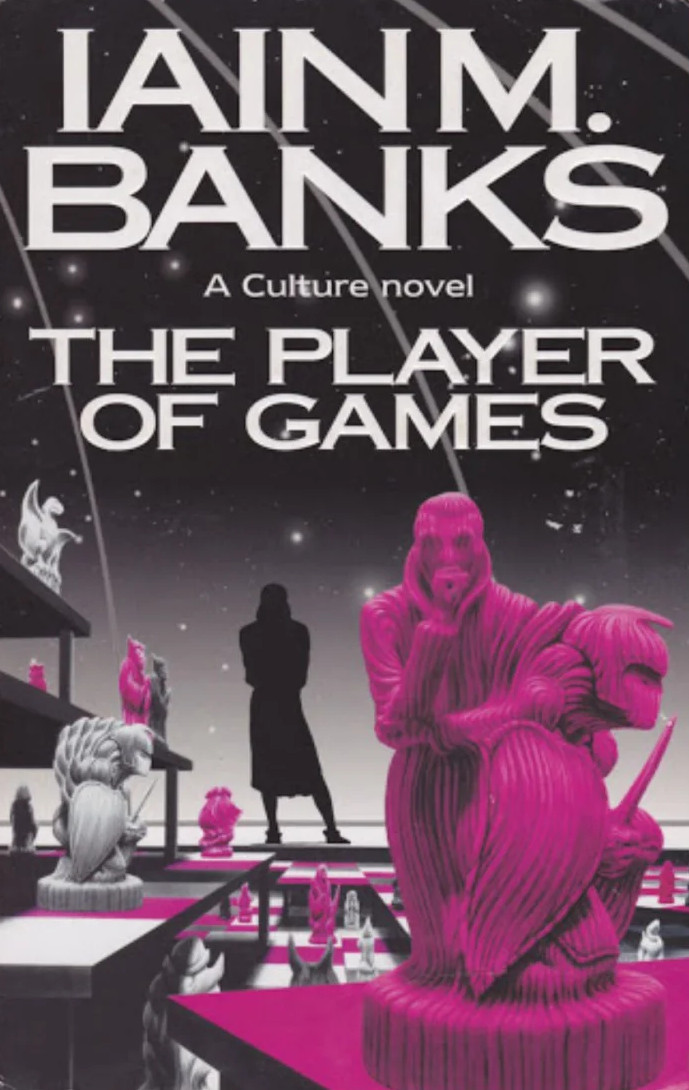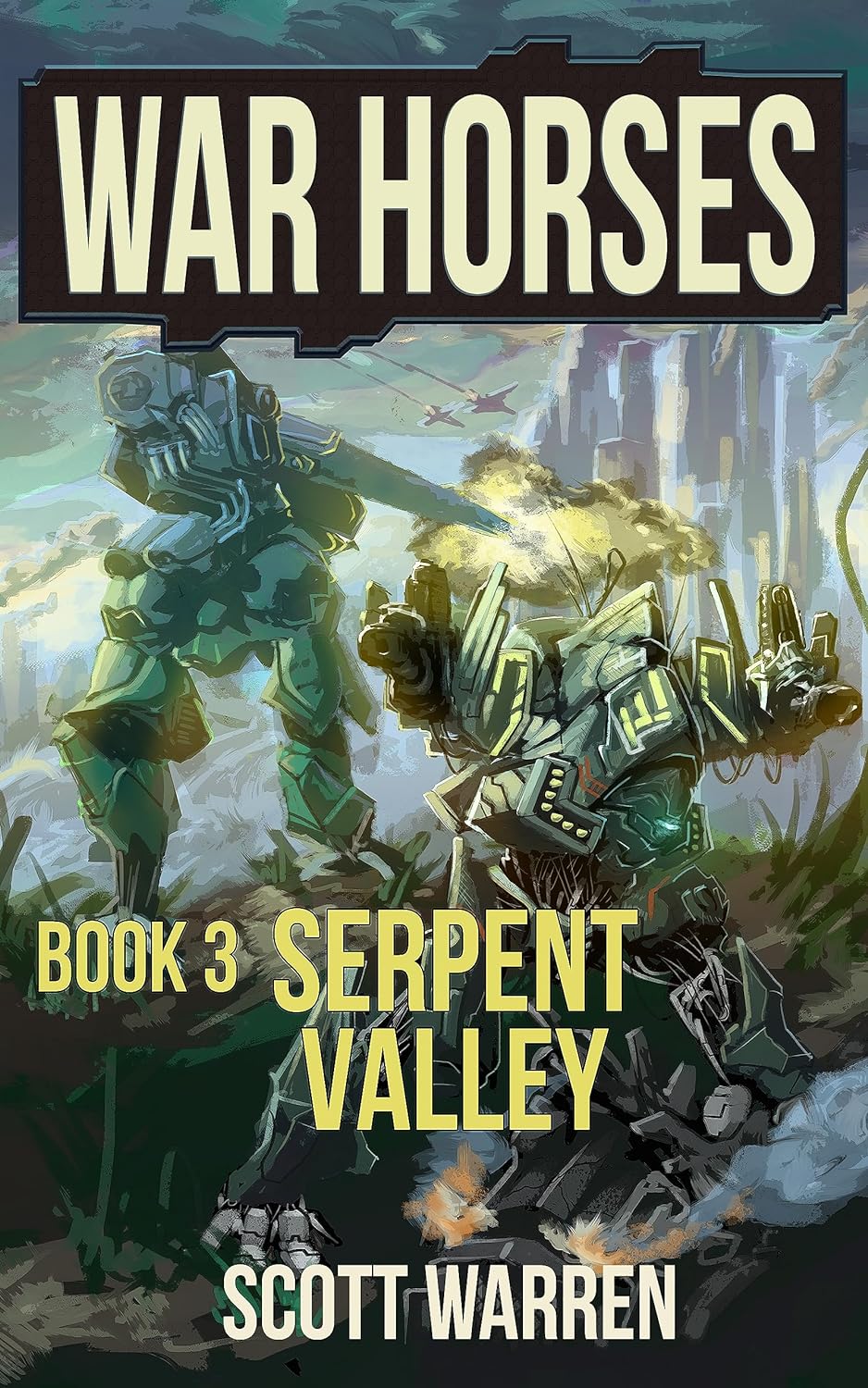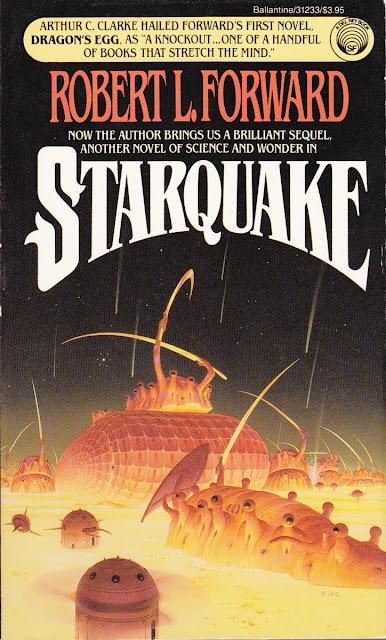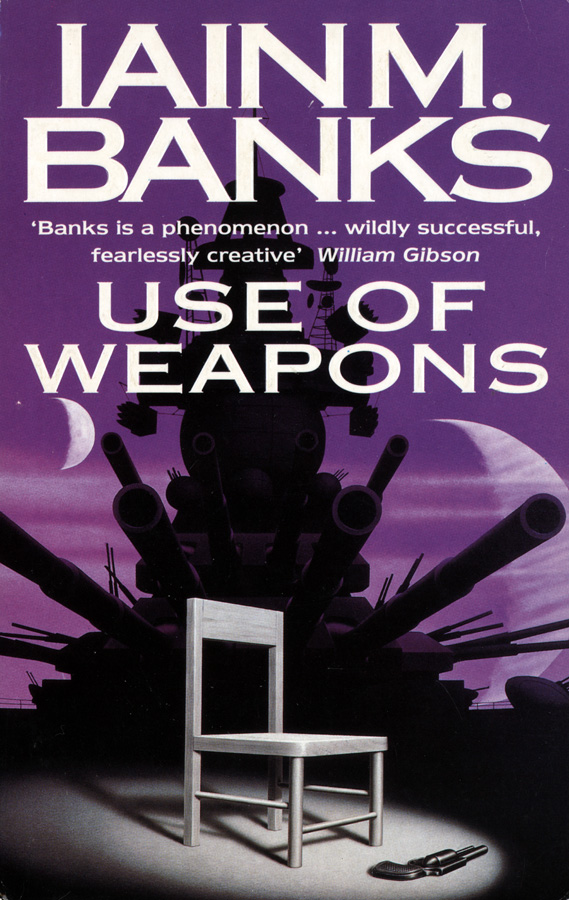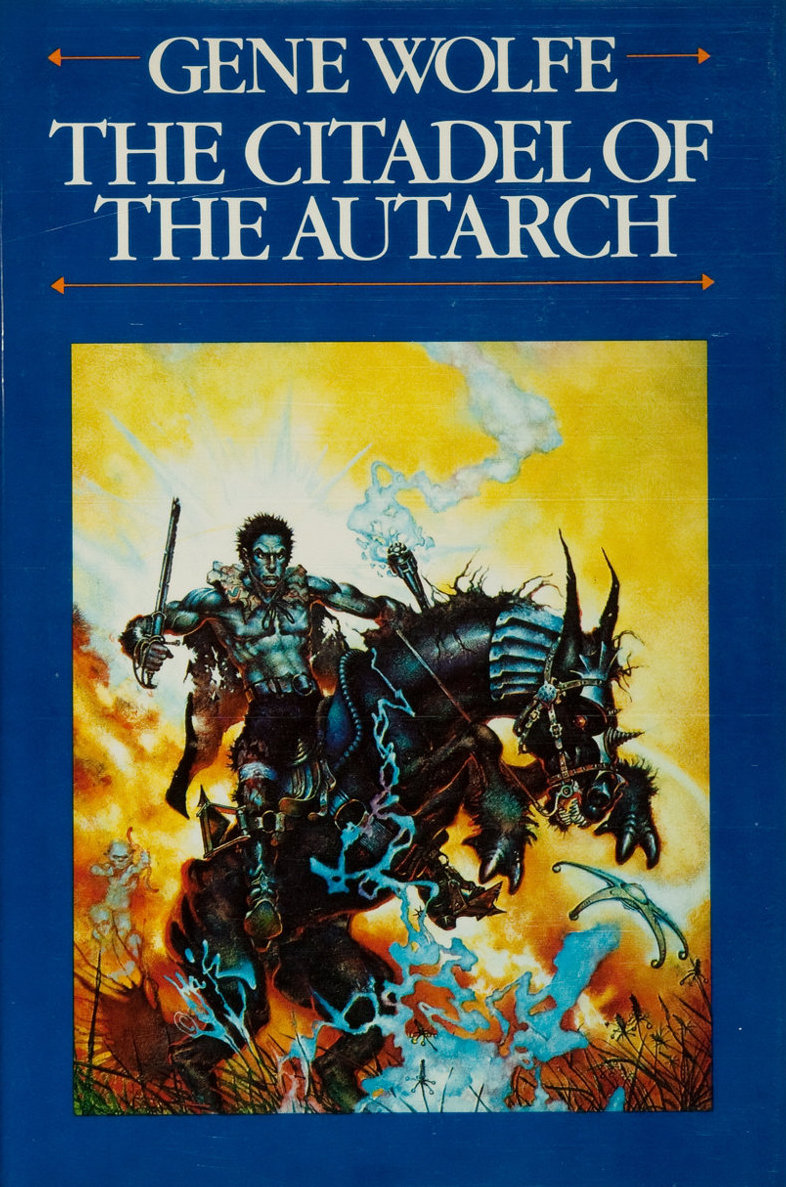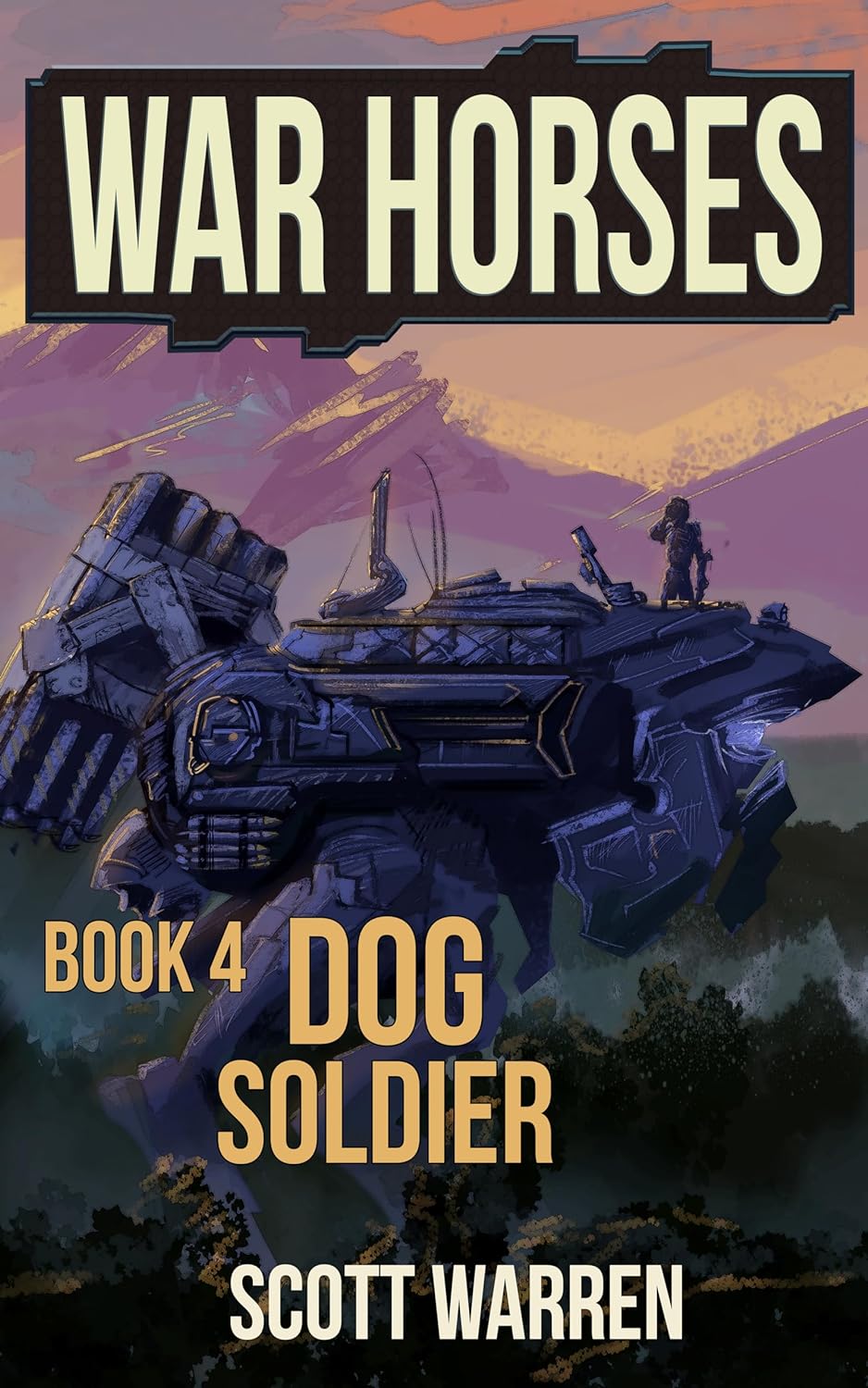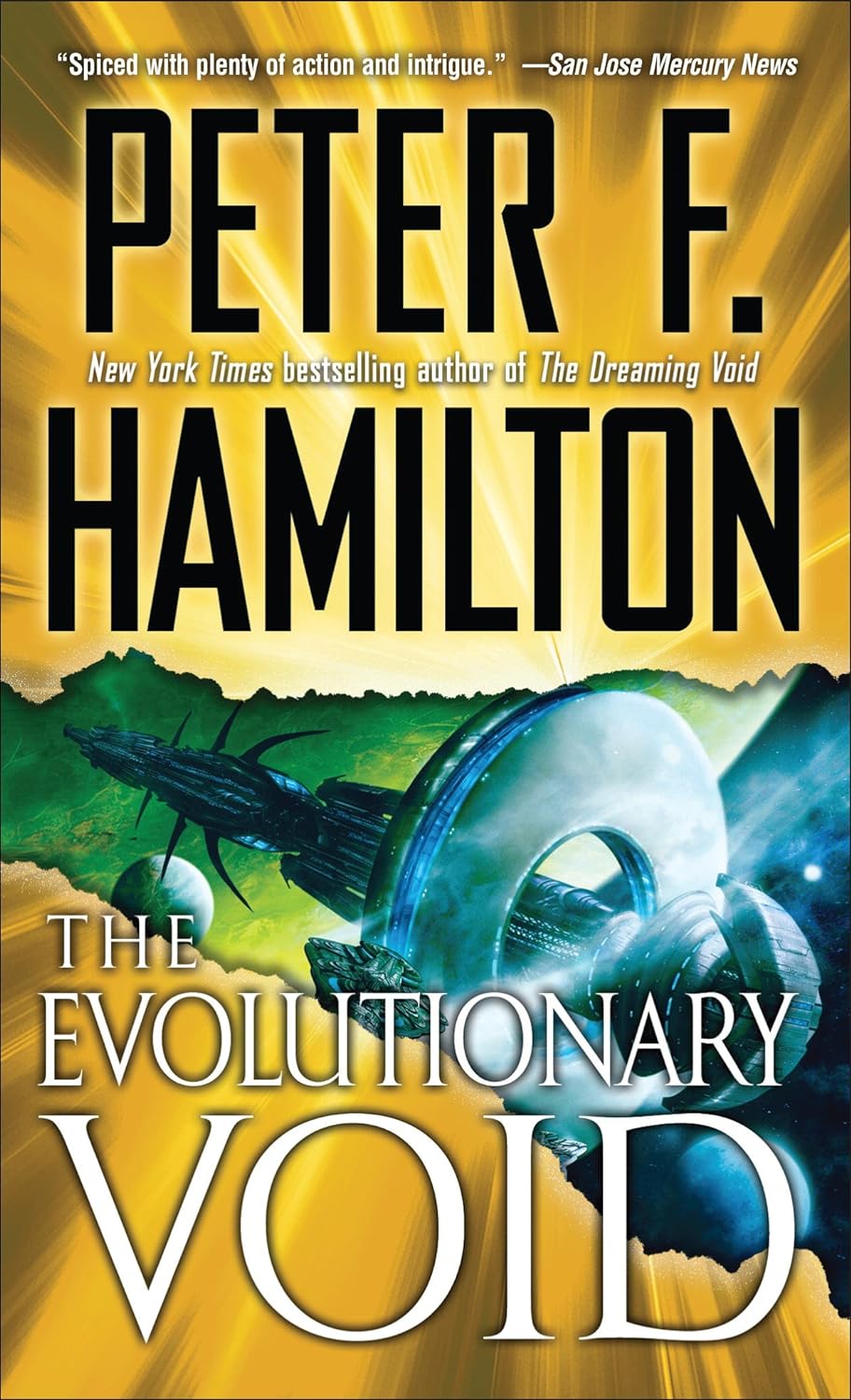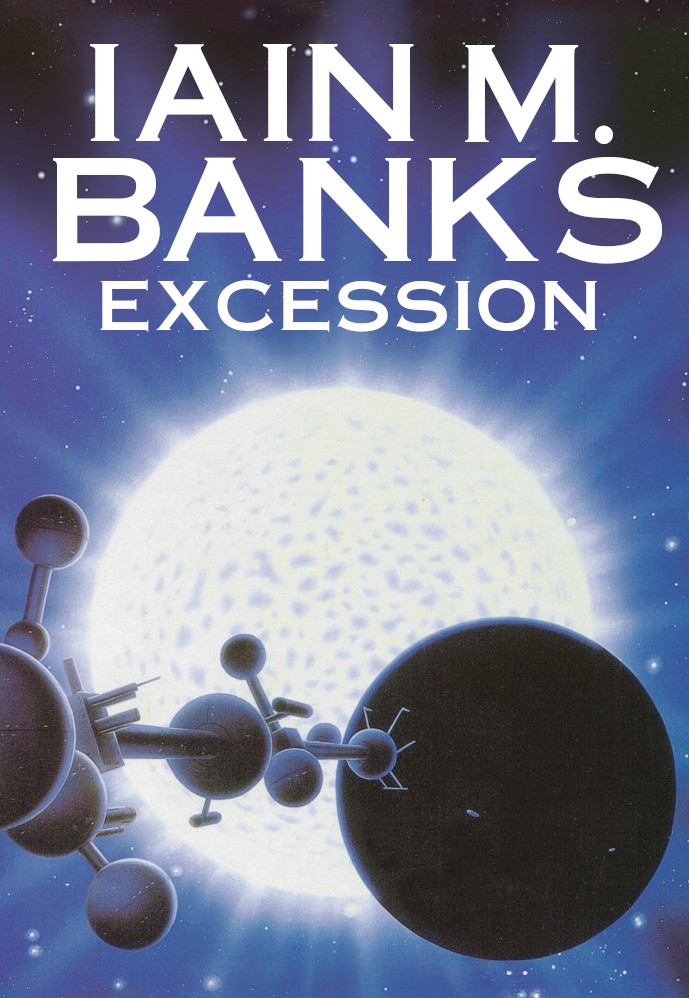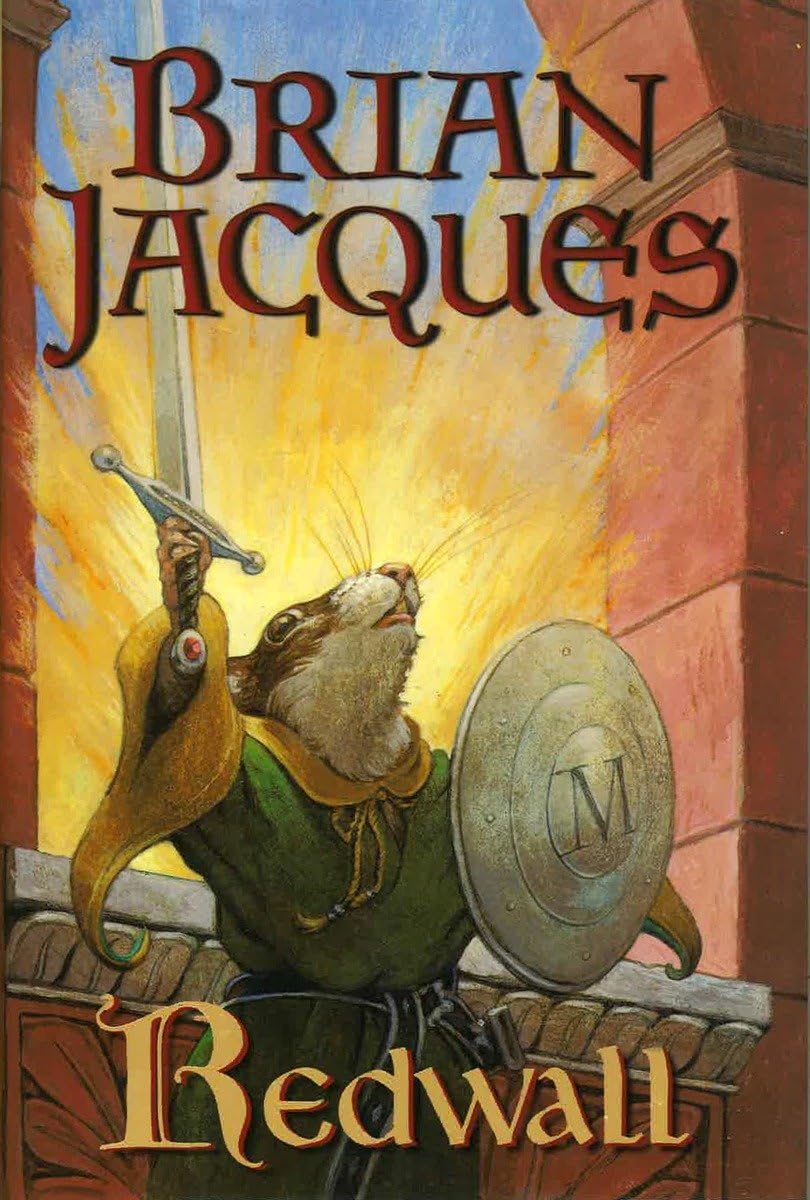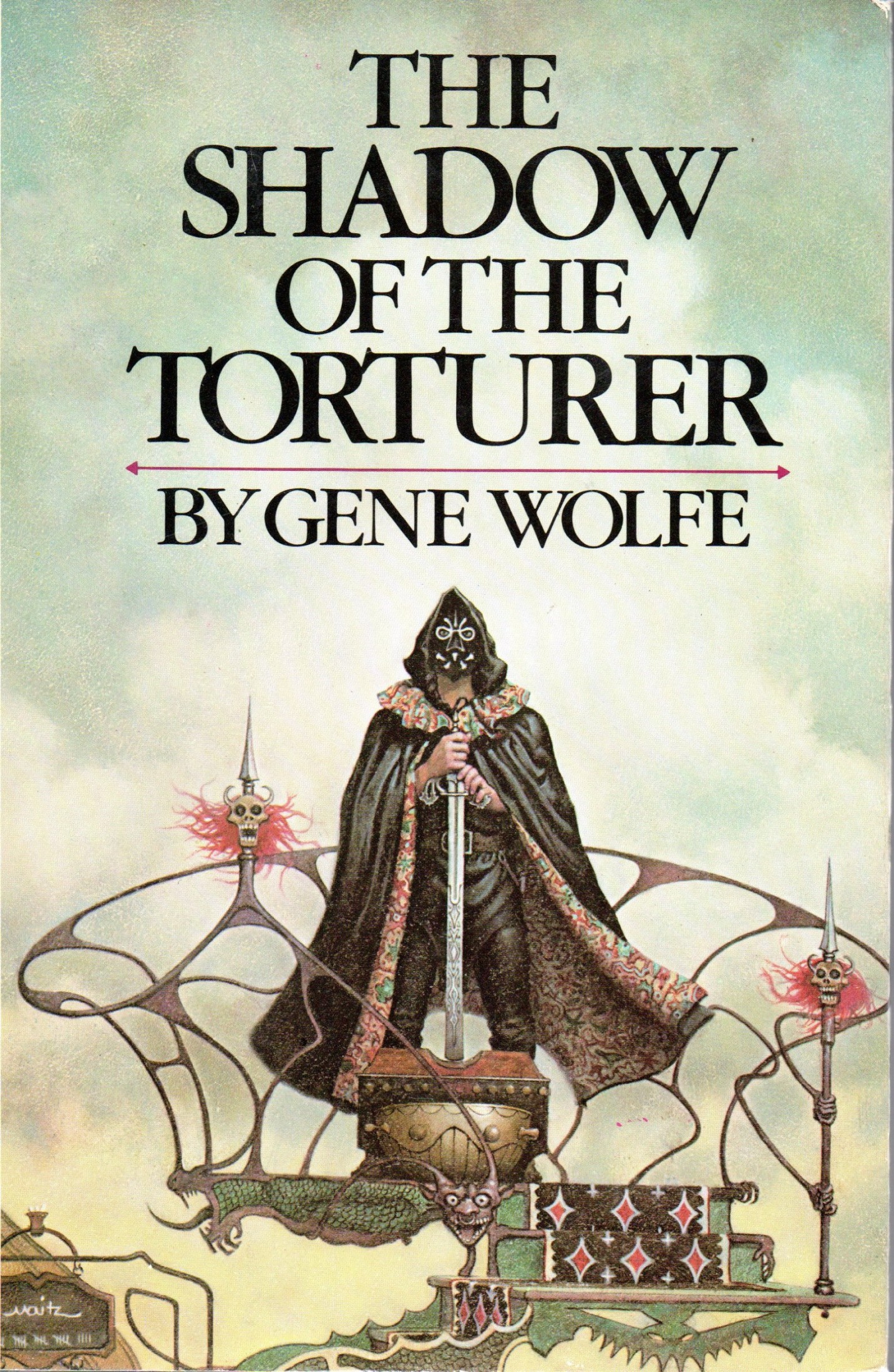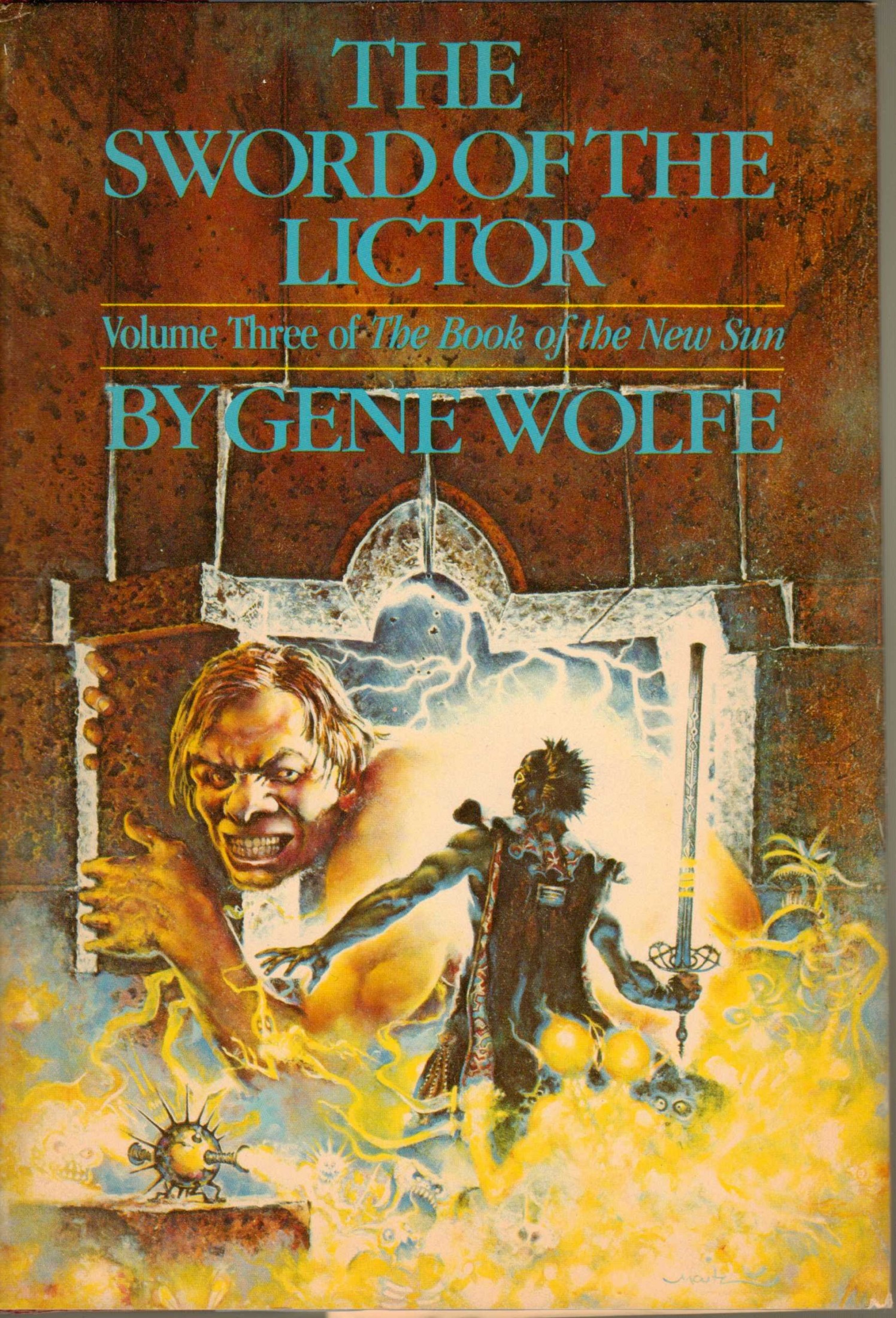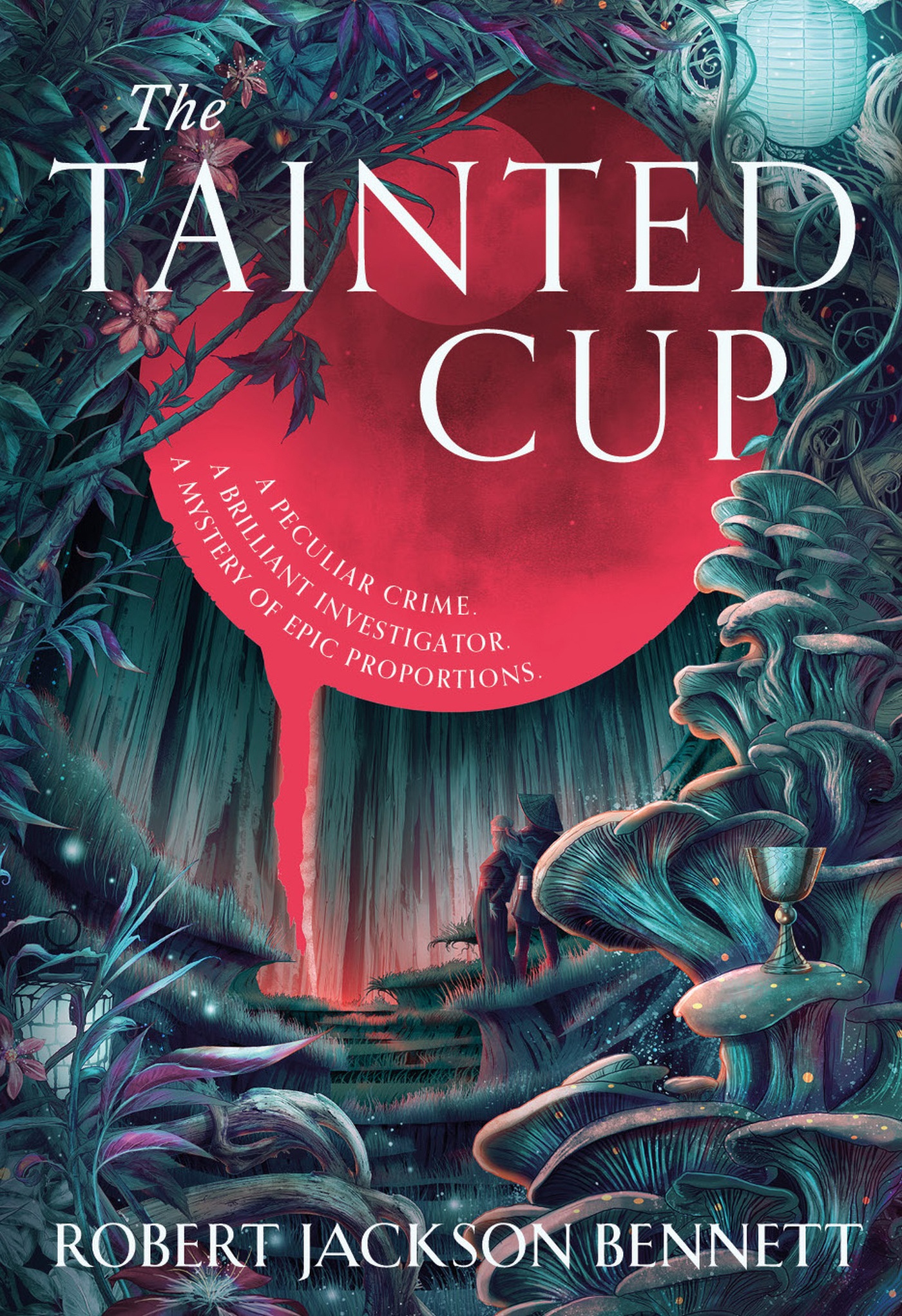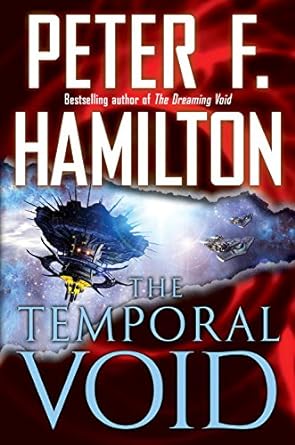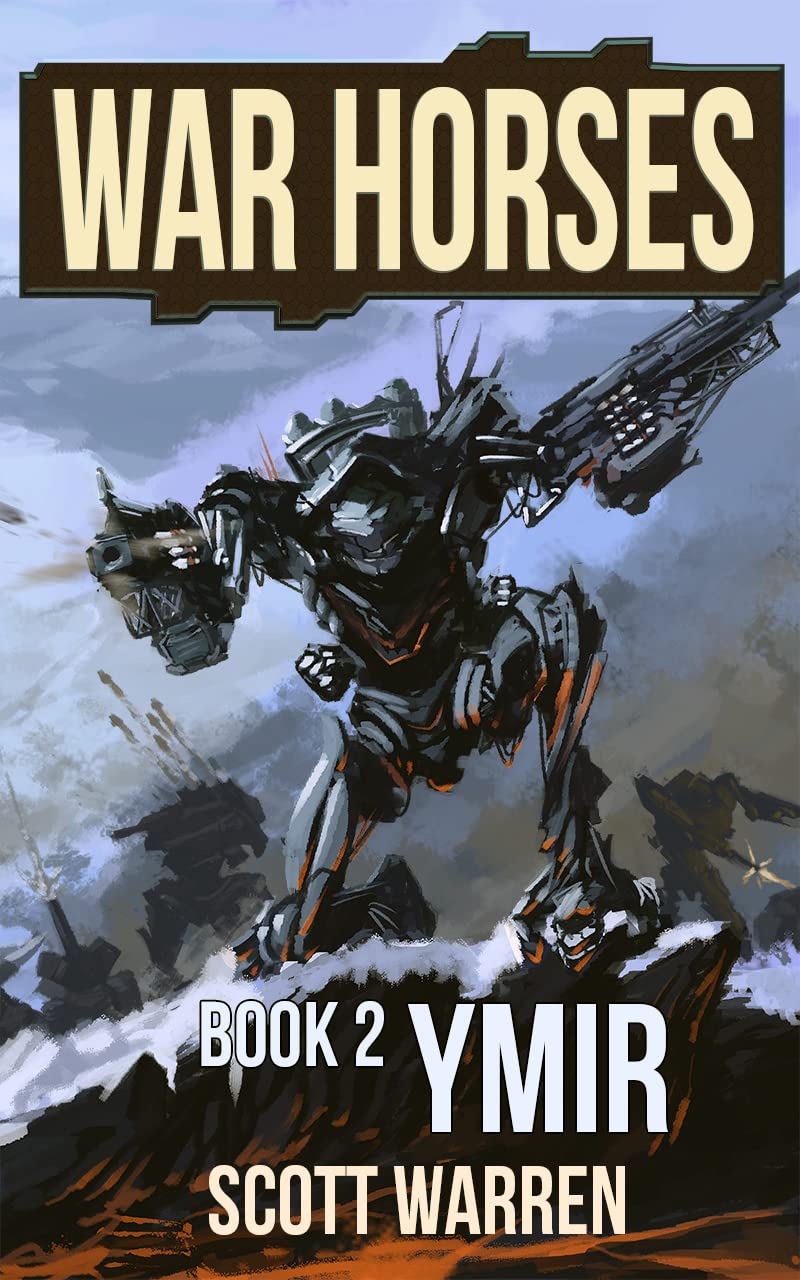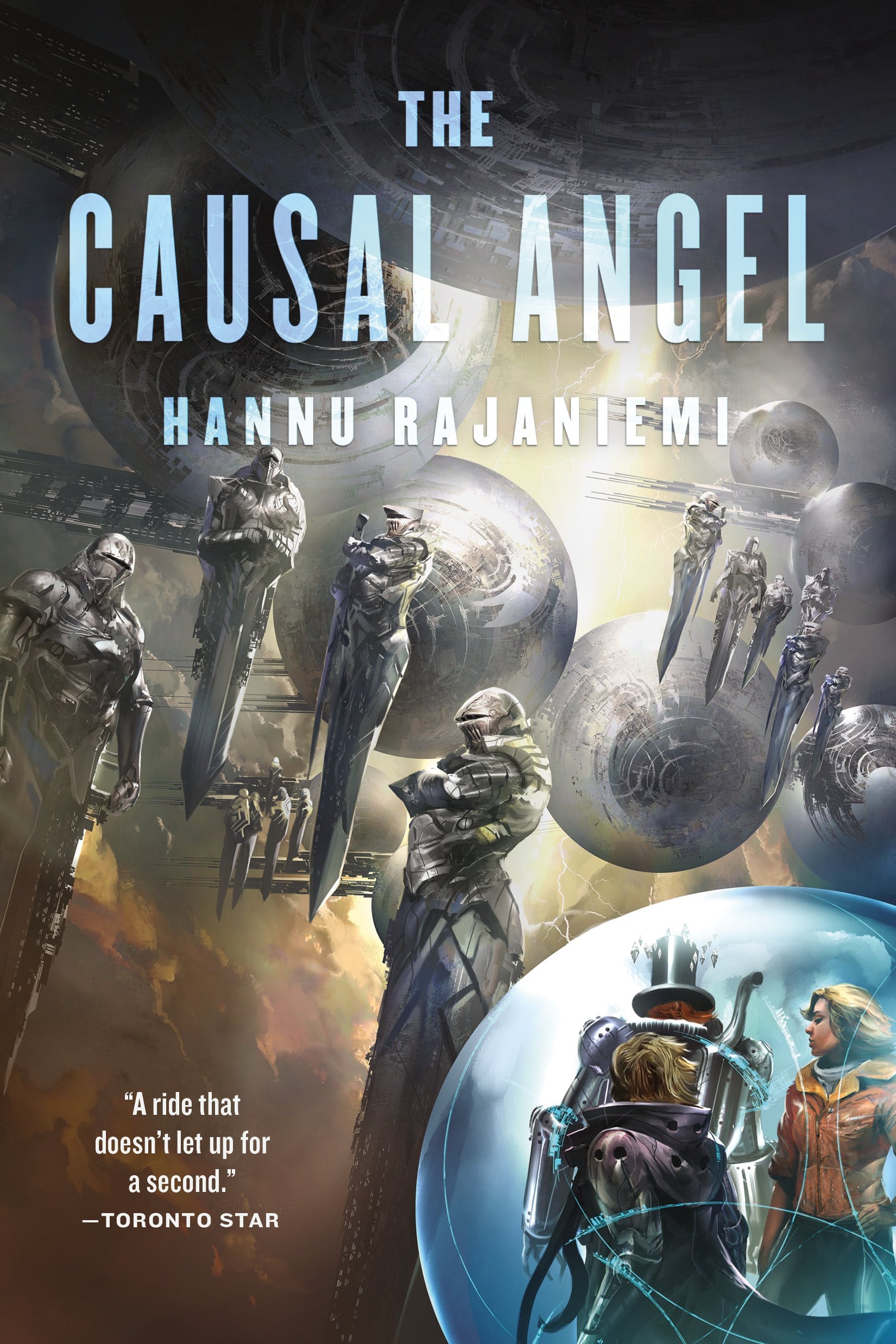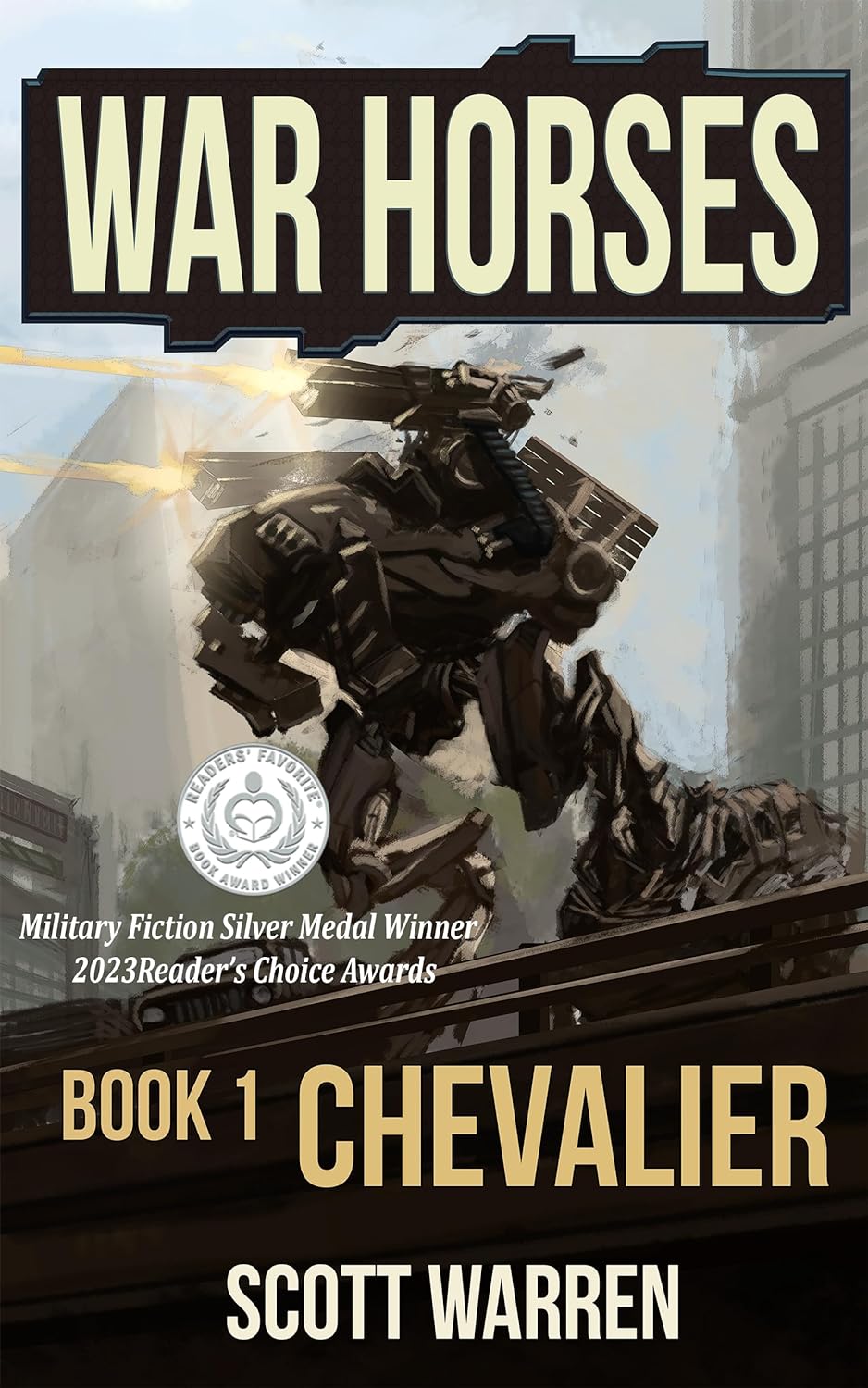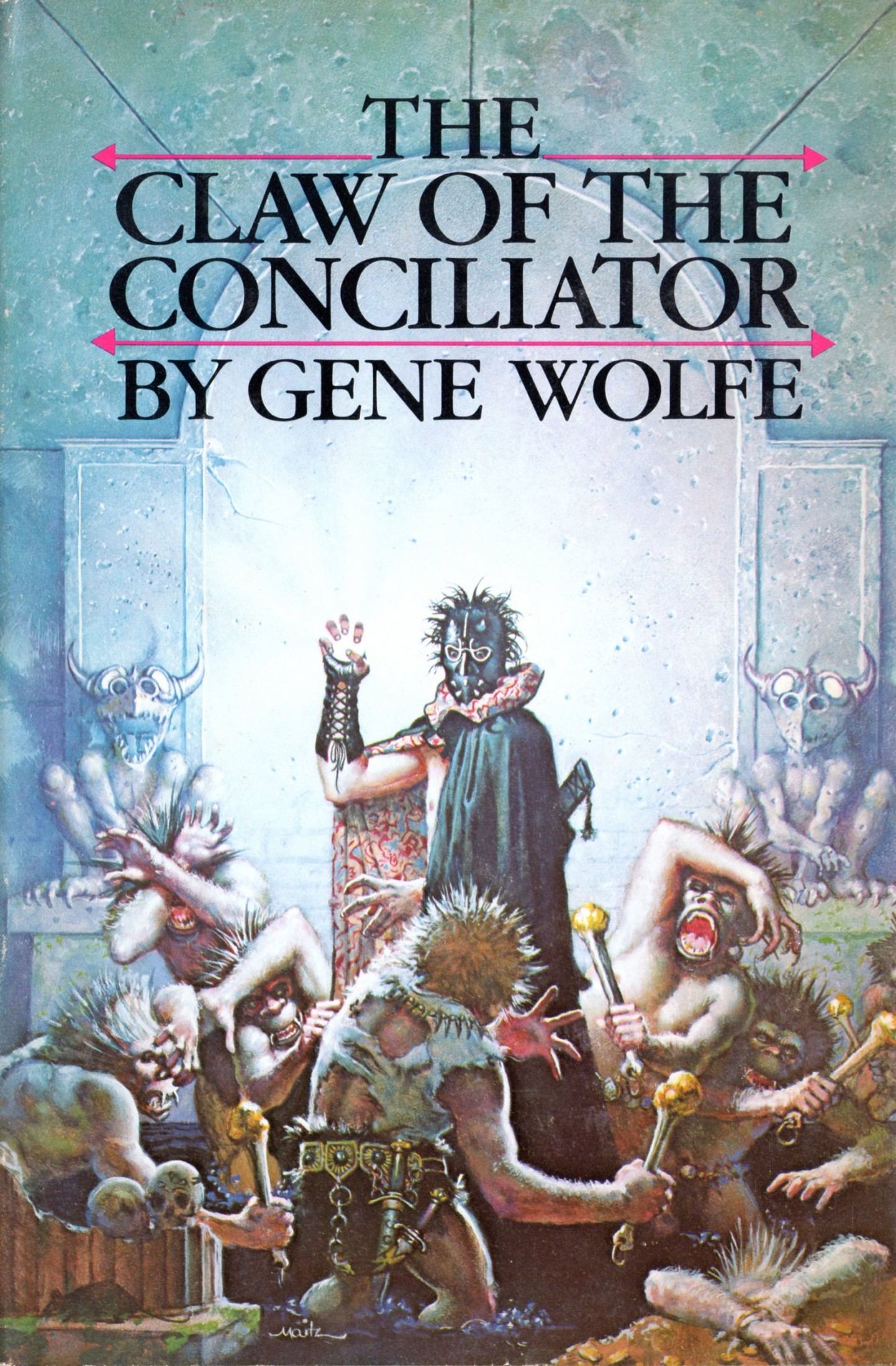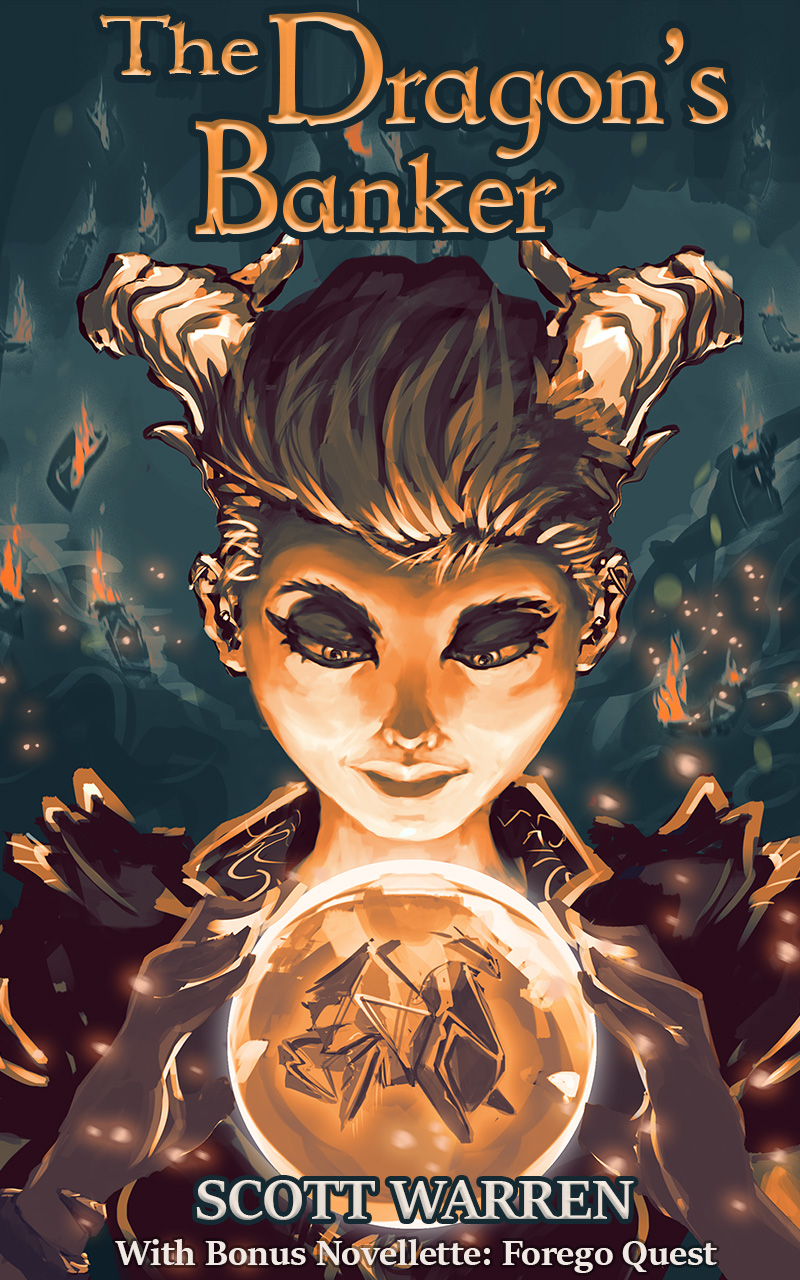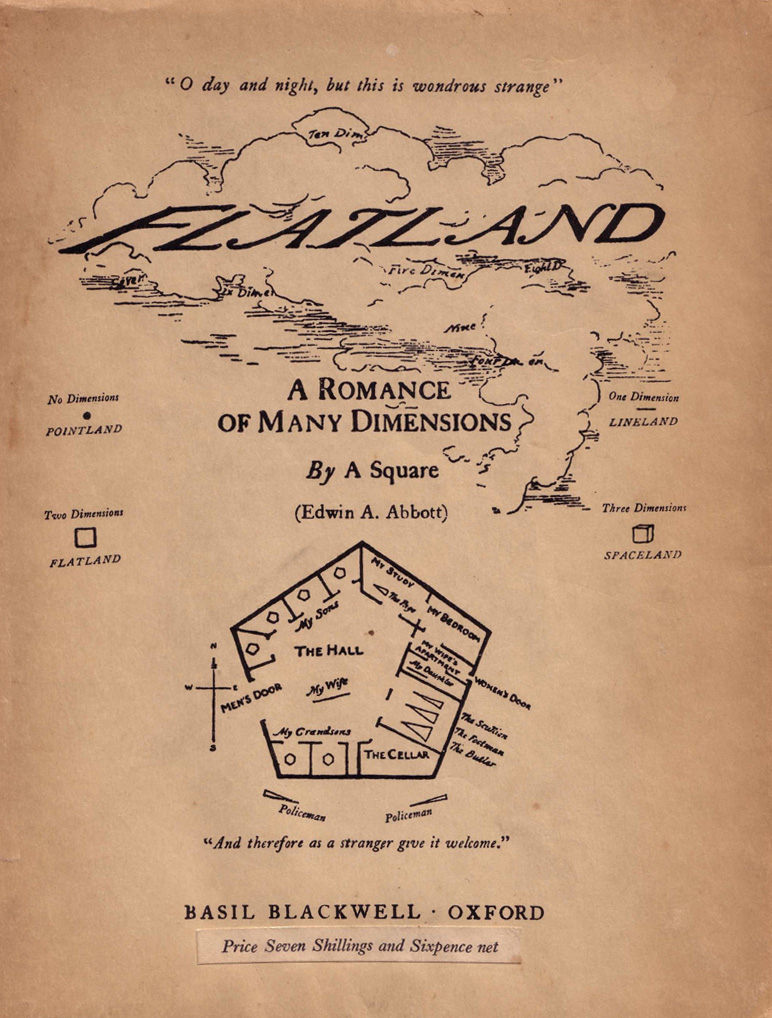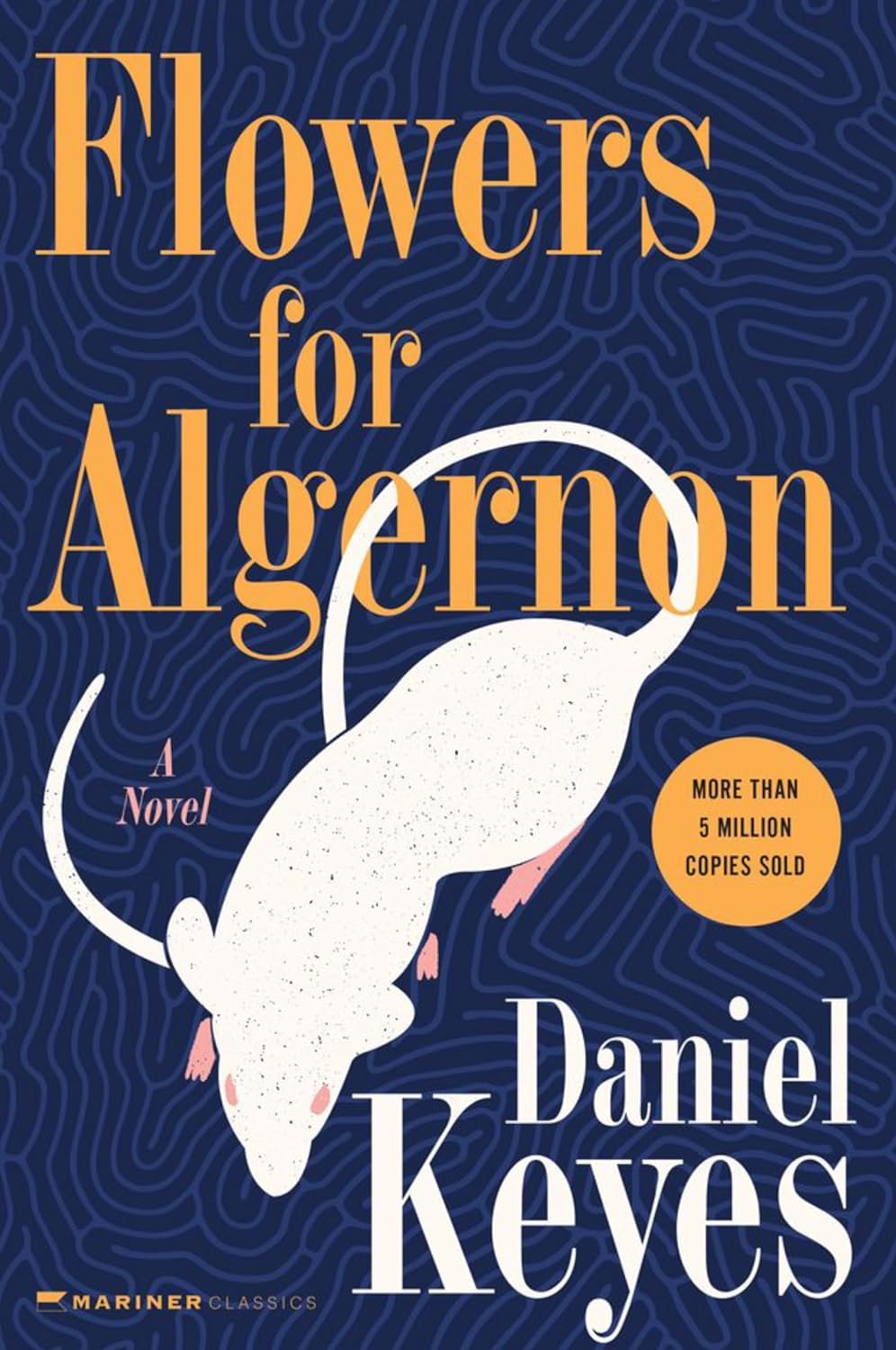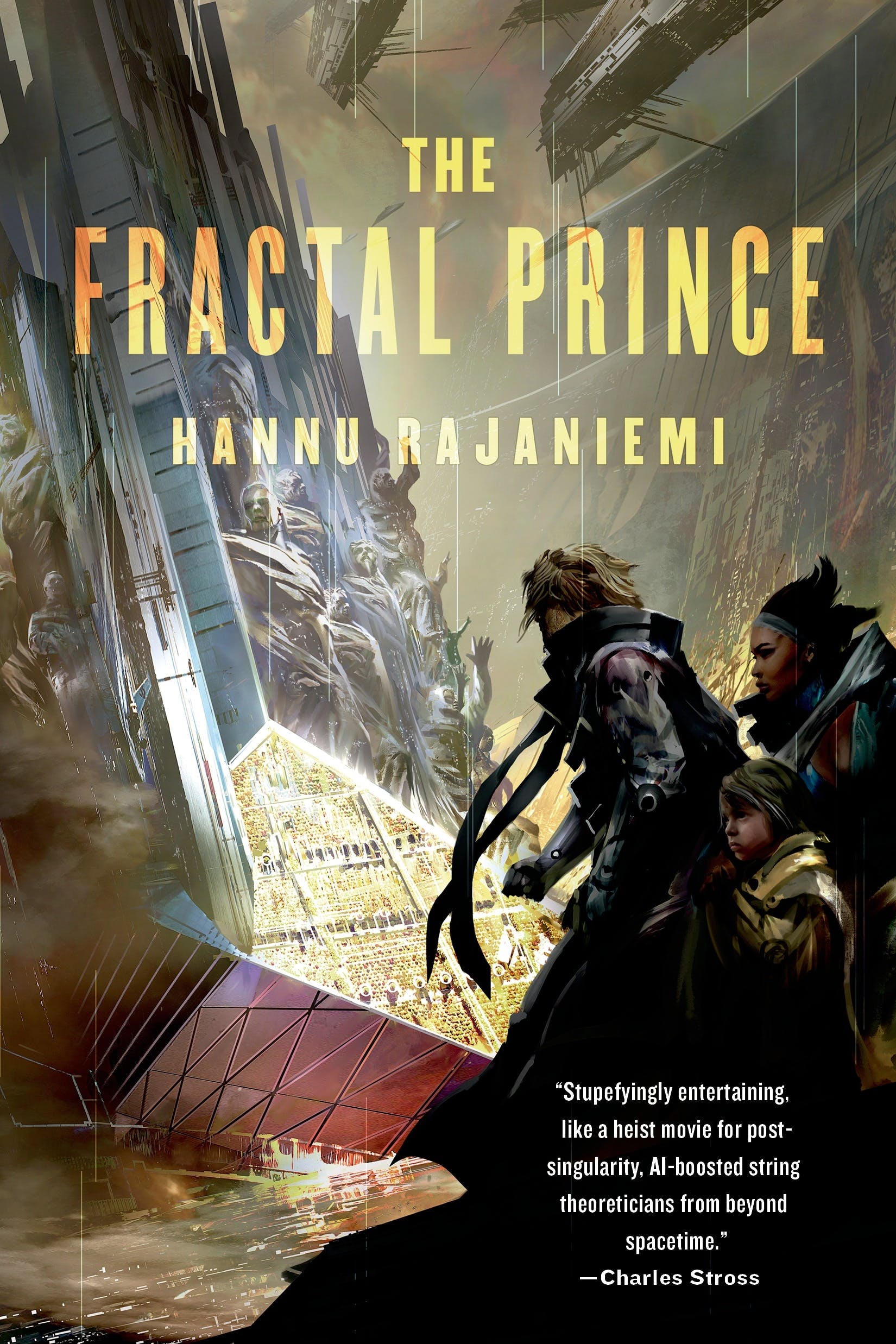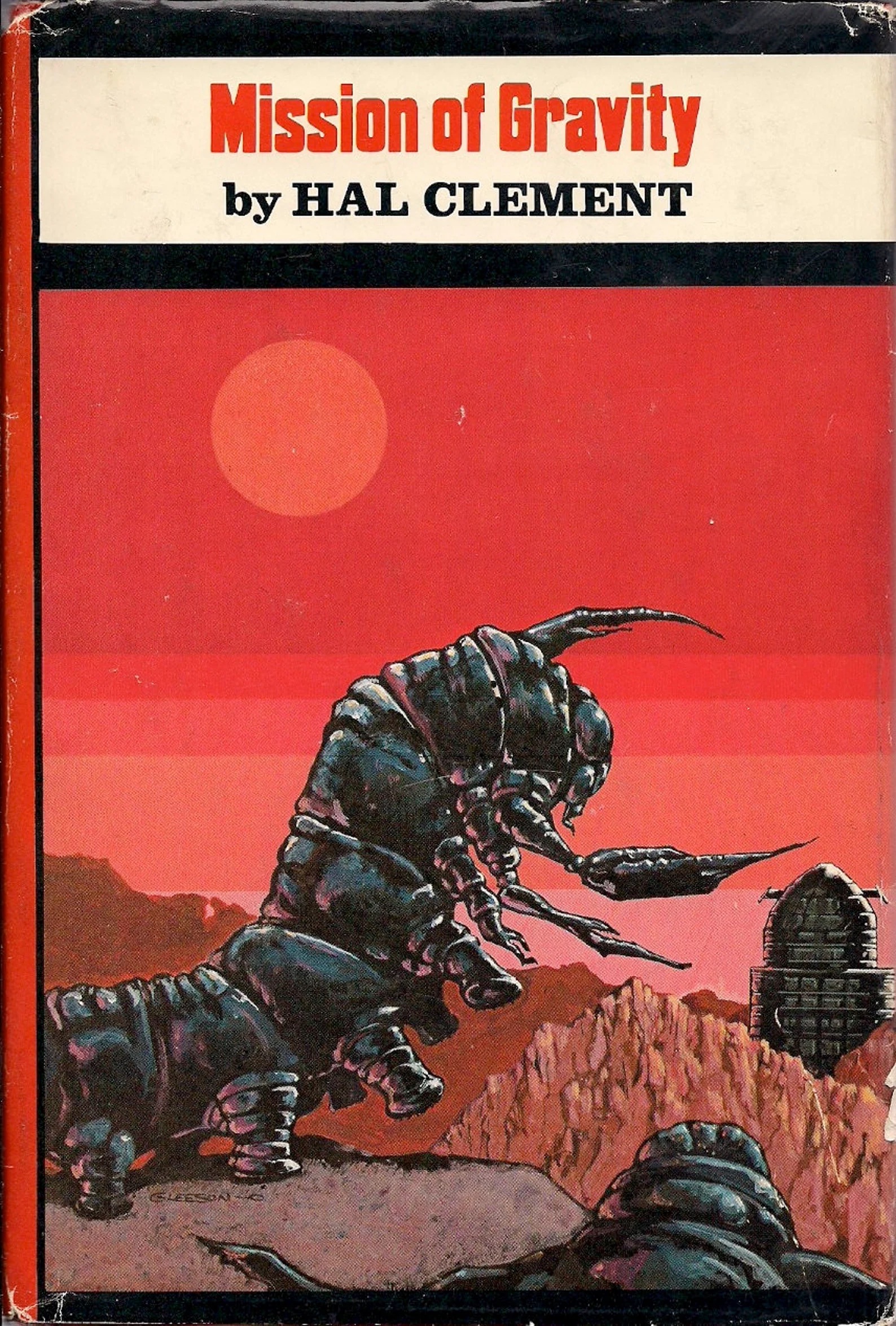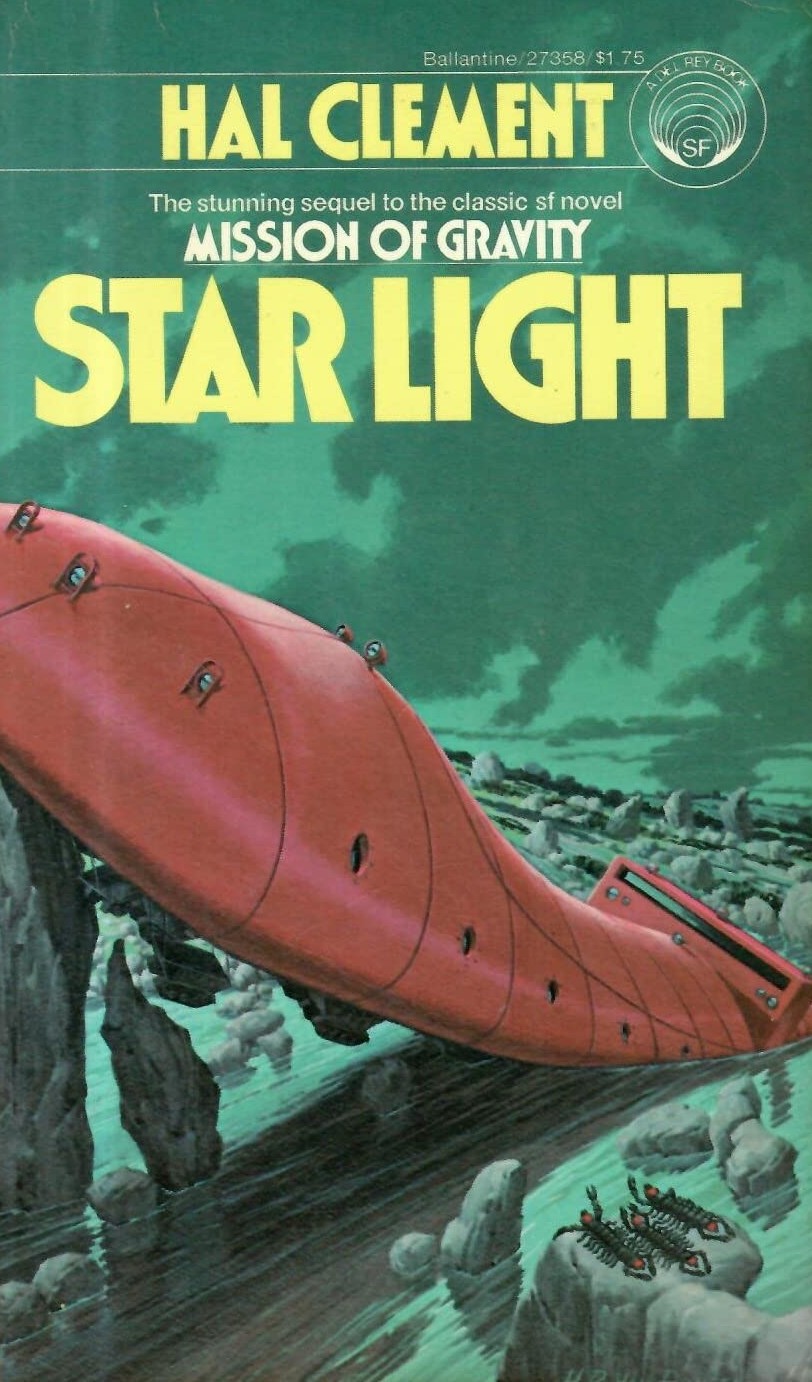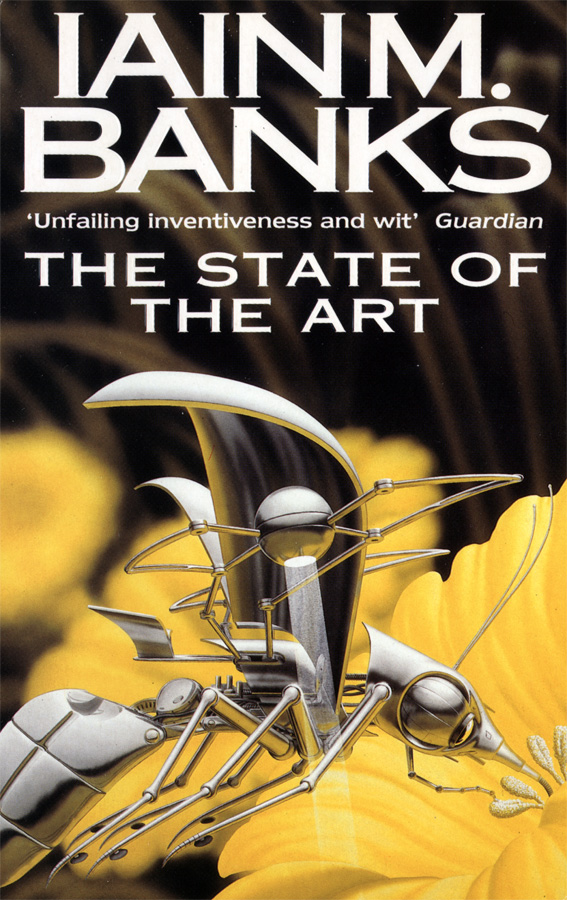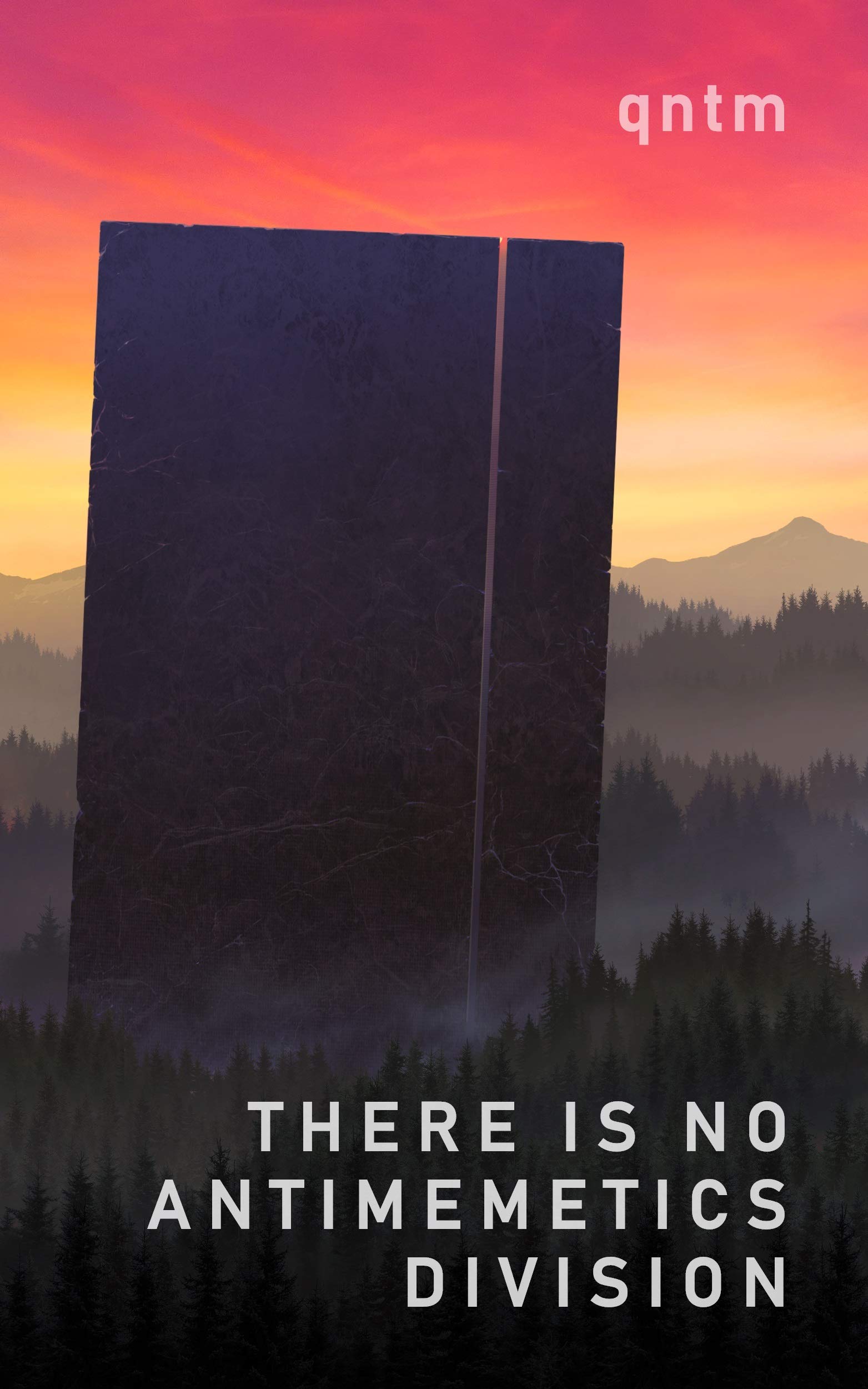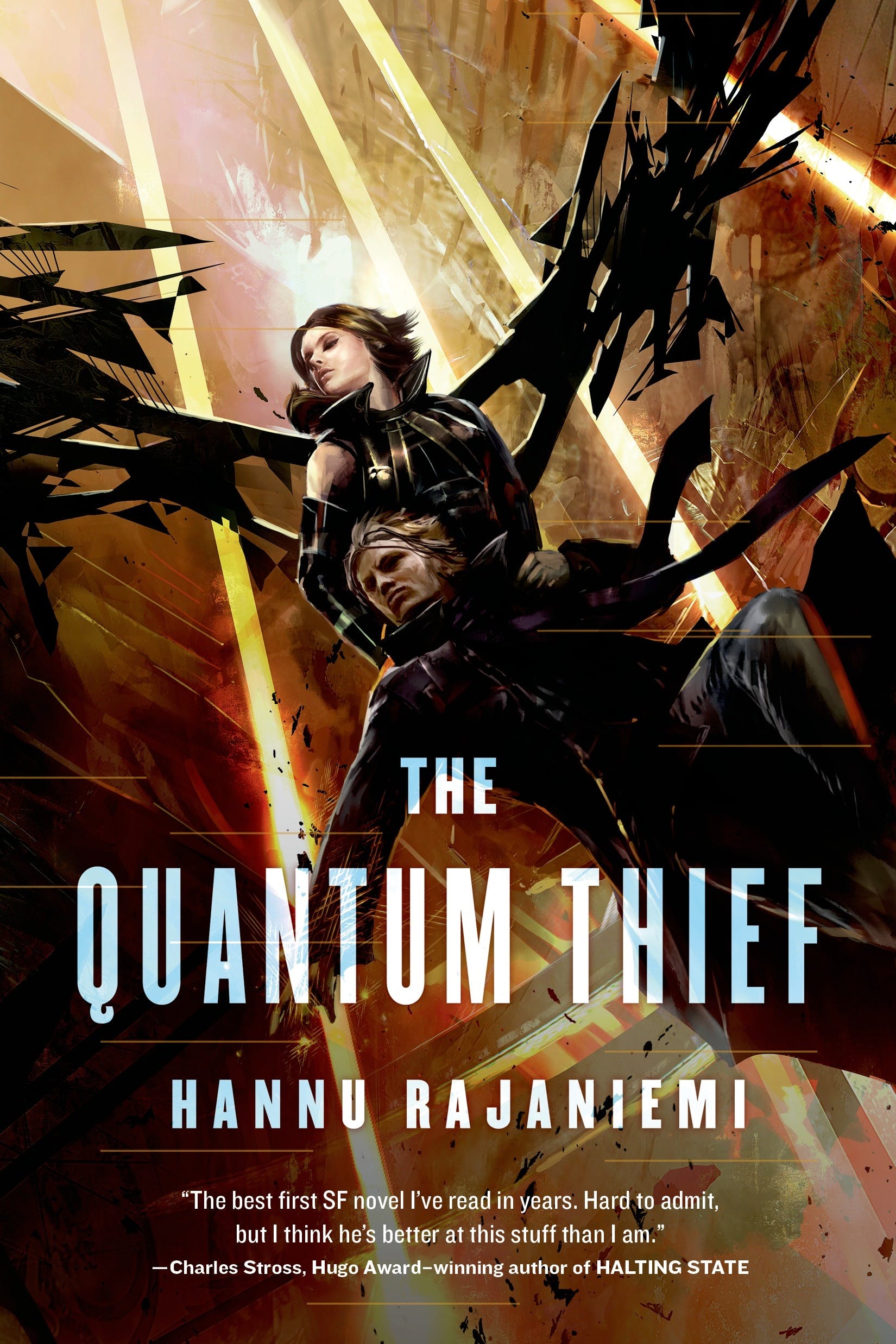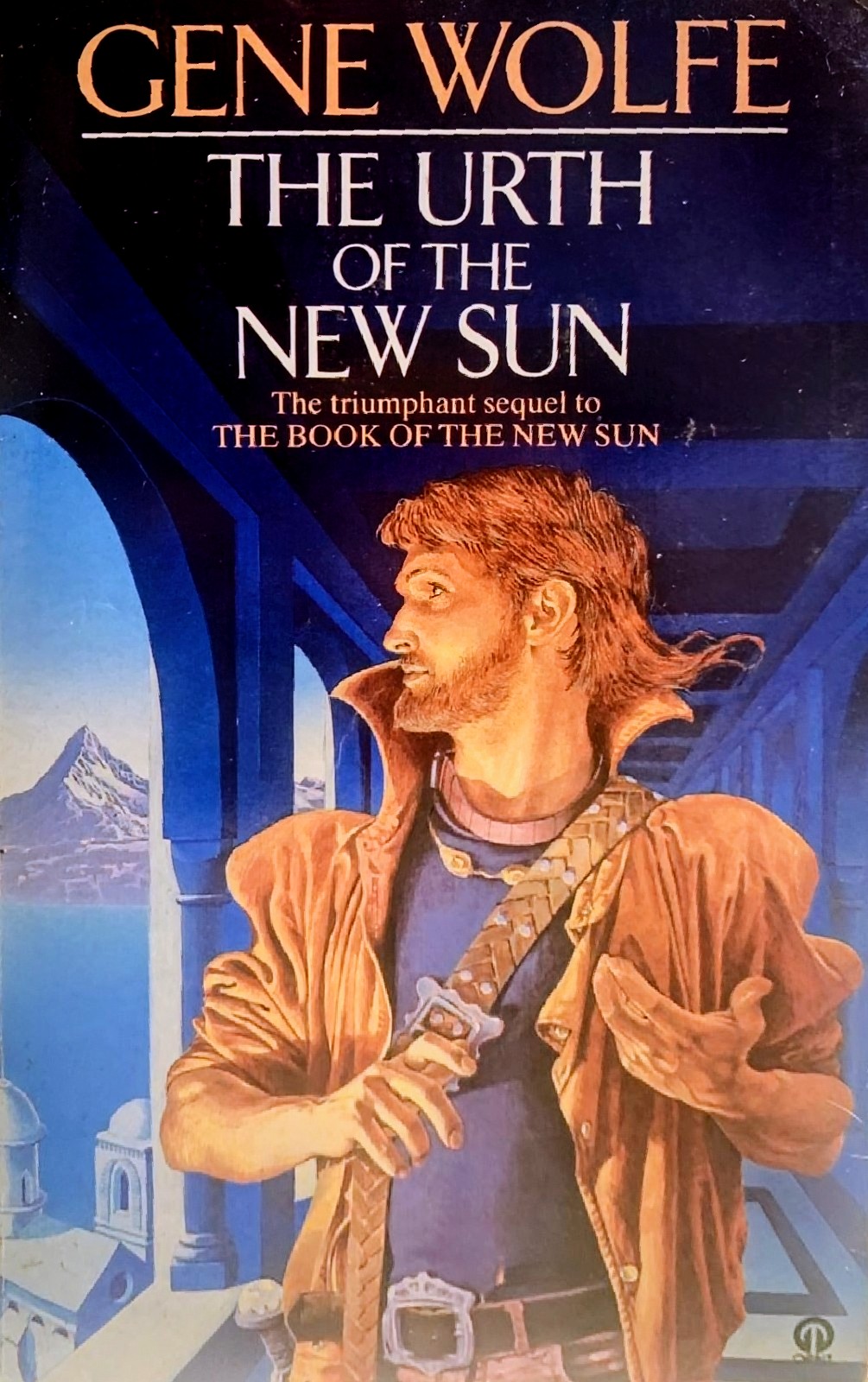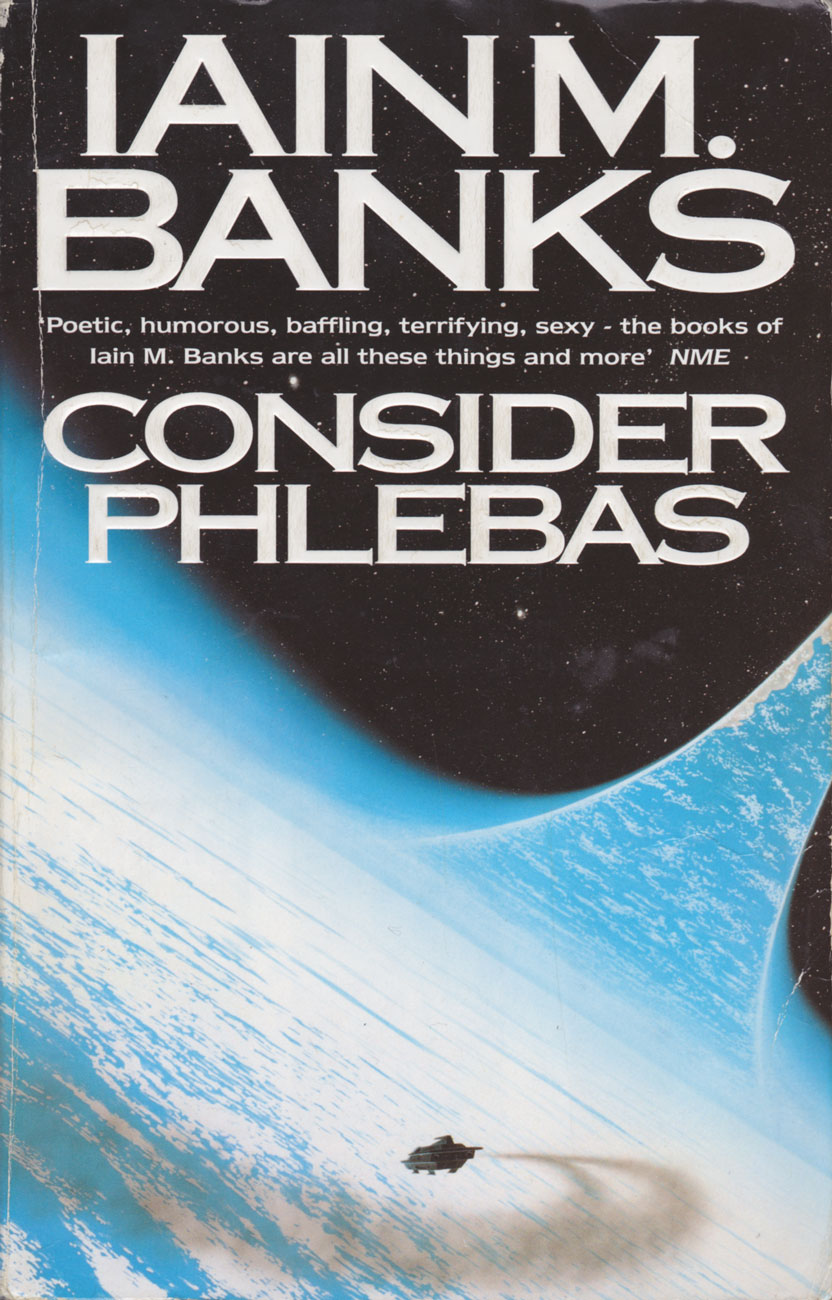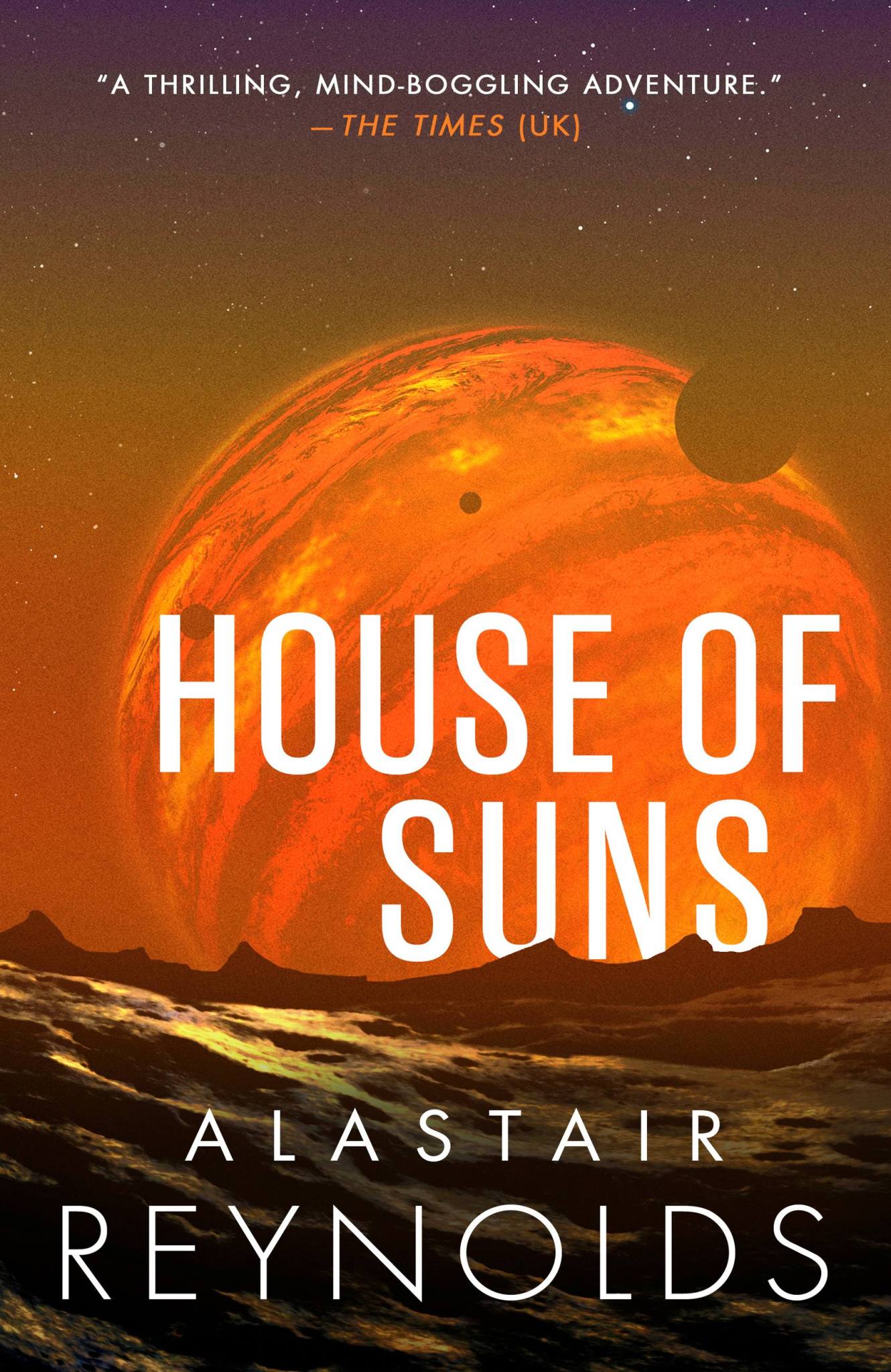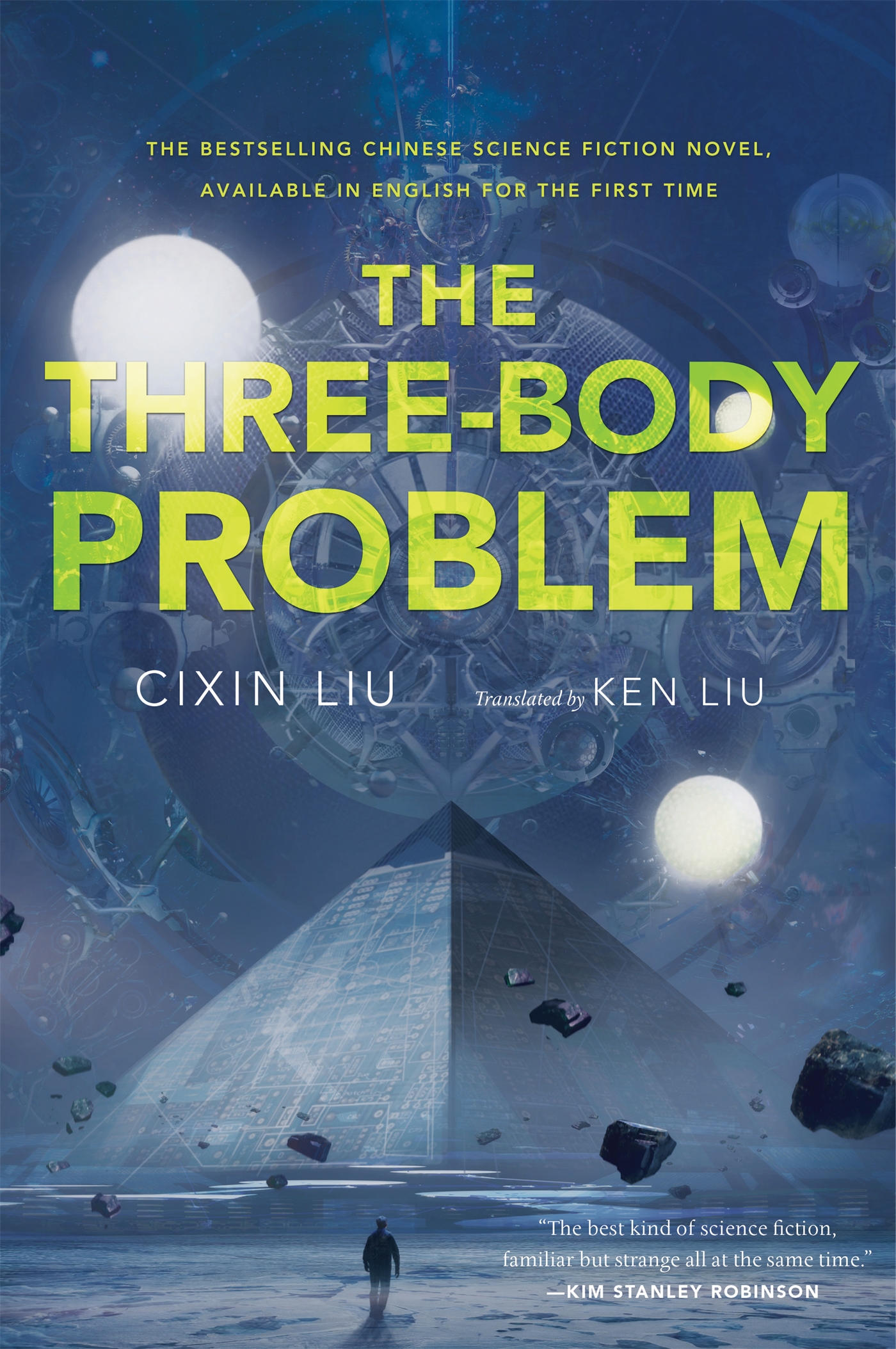Book Reviews: By Rating
Below you’ll find short reviews of the books I’ve read, sorted by rating.
The Abyss Beyond Dreams starts off The Chronicle of the Fallers, another series in Hamilton’s Commonwealth universe. Though billed as space opera, it often reads more as urban fantasy since most of the story occurs on the planet Bienvenido inside the Void where steam engines are their most advanced technology.
Blindsight is a hard sci-fi novel about first contact with aliens in the near future. A crew of four transhumans and a vampire are sent on a spaceship to investigate an anomaly in the solar system after a swarm of alien probes scan Earth.
Childhood’s End is a classic sci-fi novel by . It is about first contact between humans and the mysterious Overlords, and the end of the human race.
The Colonel is a short story that serves as a bridge between Blindsight and Echopraxia. It follows Colonel Keaton—the father of Siri Keaton—as he investigates whether the Bicameral hivemind poses a threat to baseline humans.
Dragon’s Egg is a hard sci-fi novel by . It tells the story of first contact between humans and the Cheela: beings who live on a neutron star.
The Dreaming Void is set in the same universe as to Hamilton’s Commonwealth Saga, but saying that isn’t quite strong enough: it is really a sequel. You pretty much must read the Commonwealth Saga first because half of the characters return, and every major plot point from the earlier books is spoiled in this one.
Echopraxia is the second book in Peter Watts’s Firefall series, although it takes place roughly at the same time as Blindsight. It follows parasitologist Daniel Brüks as he gets dragged into a conflict between multiple transhuman factions, travels to the Icarus station orbiting the sun, and back to Earth.
The Fall of Hyperion is a sequel that outshines it’s predecessor. It is everything I was expecting from Hyperion and more! A true masterpiece.
The sequel to Pandora’s Star, Judas Unchained continues right where the last one left off, but with the action ramped up to 11. The various storylines and loose threads come together one by one until it’s the good guys racing against the bad guys for the fate of the universe.
Mattimeo is the third book in the Redwall series. It begins with the kidnapping of the abbey children by Slagar the cruel and follows Mathias as he tries to save them.
Night Without Stars is the second book in the Chronicle of the Fallers. It is action packed, with great pacing, and complex characters. It is my new favorite Hamilton book.
I couldn’t put Pandora’s Star down! It is a sci-fi book that reads more like a thriller. There were always new mysteries that just a few more pages promised the answers to.
The Player of Games is the second novel in Iain M. Banks’s Culture series. It tells the story of Jernau Morat Gurgeh, a master game player who is recruited to play Azad, an incredibly complex game that serves as the basis for the Empire of Azad’s entire government.
Serpent Valley, the third book in the War Horses series, is another quick, action-packed read—but without the flaws holding back its predecessors. Easily my favorite of the series so far!
Starquake is the second book in the Cheela series by . It follows the Cheela as they rescue the humans and rebuild after a devastating starquake.
Use of Weapons is the third novel in the Culture series by Iain M. Banks. It tells the story of a man called Cheradenine Zakalwe, who works for the Culture’s Special Circumstances division.
The Citadel of the Autarch is the forth book in Gene Wolfe’s The Book of the New Sun tetralogy. It follows Severian as he reaches the front in the war against the Ascians and assumes the role of Autarch.
Dog Soldier is the fourth book in the War Horses series. In it, Warren concludes the Cinto DaSelva campaign and further develops the setting’s backstory.
Eater is a hard sci-fi novel by . It follows a group of astrophysicists who discover a sentient black hole that is headed straight towards Earth.
The final book in Hamilton’s Void Trilogy, The Evolutionary Void, wraps up the series well, but a little too quickly. All the characters and storylines arrive where they’re needed and then the story is over.
Excession is the fourth novel and fifth book in the Culture series. It follows the reaction of the Culture and other civilizations to an “excession”: an “Outside Context Problem” that is mysterious and enormously powerful.
Hyperion, was not at all the book I expected. To give you an idea of how much I misjudged it, about a third of the way through I would have rated it two stars and almost put it down, about two-thirds of the way through I was solidly at three stars, and by the end I was up to four. It was not the all-time great I was promised, but it was very good.
Mossflower is the second book in the Redwall series. It chronicles the arrival of Martin the Warrior in Mossflower Woods and how he saves the woodlanders from the evil wildcat queen, Tsarmina.
Redwall is the first book in Brian Jacques’s Redwall series. It tells the story of Mathias, a mouse who follows his destiny to become the warrior of Redwall Abbey and defeat the evil rat Cluny the Scourge.
The Shadow of the Torturer is the first installment in Gene Wolfe’s The Book of the New Sun tetralogy. It follows the life of Severian, a torturer and executioner on a dying Earth. The pacing is slow, but Wolfe’s worldbuilding is fantastic, crafting a setting that pulls the reader in.
The Sword of the Lictor is the third book in Gene Wolfe’s The Book of the New Sun tetralogy. It follows Severian after he reaches Thrax and is exiled for a second time.
The Tainted Cup is a fantasy detective novel set in a world where humanity is on the brink of destruction from giant Kaiju. It follows investigators Dinios Kol and Ana Dolabra as they try to solve the murder of an engineer and uncover a conspiracy that runs far deeper.
The second book in Hamilton’s Void Trilogy, The Temporal Void, continues to advance the story, but like many middle books in a trilogy, it does so slowly. Much of this slowness is due to multiple, massive, 200-page chapters following Edeard in the Void.
The Causal Angel is the last book in the Jean le Flambeur trilogy. We finally learn le Flambeur was hired to steal the Kaminari Jewel, a Zoku gem with the power to alter reality.
Chevalier is a modern reimagining of 1980’s mech sci-fi like Battletech, Gundam, and Macross. It’s a quick, action-packed read—not very deep but highly entertaining—that focuses on making mechs feel like realistic battlefield tech, not magic.
The Claw of the Conciliator is the second book in Gene Wolfe’s The Book of the New Sun tetralogy. It picks up right where The Shadow of the Torturer leaves off, following Severian as he makes his way towards Thrax.
The Dragon’s Banker is a standalone novel by Scott Warren. It tells the story of Sailor Kelstern, a banker in a fantasy world who, as the title suggests, is hired by a dragon.
Flatland: A Romance of Many Dimensions is a satirical short novel by , critiquing the rigid class hierarchy of Victorian England through the lens of geometry.
Flowers for Algernon is a Hugo and Nebula award-winning novel about Charlie Gordon, a man with intellectual disabilities who undergoes surgery to enhance his cognitive abilities. While it is a beautifully crafted narrative, it failed to captivate me.
The Fractal Prince is the second book in the Jean le Flambeur series. While the first book, The Quantum Thief, left me underwhelmed, the second book more than lived up to the hype.
Mission of Gravity is a sci-fi adventure story set on the planet Mesklin—a massive, rapidly rotating world with gravity much higher than Earth’s. It follows Barlennan, a Mesklinite, as he sails the Bree across the planet in search of a lost human rocket ship.
Star Light is the sequel to Mission of Gravity, and continues the theme of Human–Mesklinite exploration, this time focusing on a large star-like planet.
The State of the Art is a collection of short stories by Iain M. Banks. It contains some stories related to the Culture universe and some general science fiction tales. Although it has been considered utopian fiction, it comes across as rather bleak.
There Is No Antimemetics Division is a book based in the SCP universe. It explores the idea of anti-memes—ideas that either can’t be thought, quickly drop out of your memory when you stop focusing on them, or are dangerous to think—and how you might contain a force you literally can’t remember.
The Quantum Thief is a sci-fi novel following the adventures of the gentleman thief Jean le Flambeur as he navigates a futuristic solar system to reclaim his lost memories and pull off an impossible heist.
The Urth of the New Sun is the fifth and final book in Gene Wolfe’s The Book of the New Sun tetralogy. It follows Severian as he leaves Urth to save mankind and returns to witness its destruction and rebirth.
I’ve been meaning to read Banks’s Culture series for more than two decades, so I was excited to finally get started. Unfortunately, Consider Phlebas was not a great introduction.
House of Suns is a standalone hard sci-fi book by Alastair Reynolds. It tells the story of the Gentian Line, a family of clones who are betrayed, nearly wiped out, and must unravel what happened.
The Three-Body Problem was recommended as a exciting, hard-scifi book full of new ideas. I was eager to read it, having just gotten back into fiction. I bought it for my flight from Melbourne to San Francisco and I threw it in the airport trash as I got off the plane.
